THE PRICE OF COURAGE
script
Maciej
Jasiński illustrations

Jacek
Michalski

script
Maciej
Jasiński illustrations

Jacek
Michalski

Elżbieta Zawacka (“Zelma”, “Sulica”, “Zo”). was an unusual person. Her rich and incredibly colourful biography was and still is a subject of scientific research, which has resulted in numerous extensive publications in forms of books and articles.
Elżbieta Zawacka was born on March 19, 1909, in Toruń. She graduated from a girls’ secondary school there ( Żeńskie Gimnazjum Humanistyczne) and began to study mathematics at the University of Poznań. It was during her studies that she had her first encounter with the idea of women’s military service, which became her major area of interest and activity. In those days, many patriotic Polish women considered it a very important cause. It was already during the Polish-Soviet War (1919–1921) that the Voluntary Legion of Women fought in the war, but eventually the formation was dissolved. Instead, in 1922, the Office for Training Women’s Military Reserve ( Referat Przysposobienia Rezerw Kobiecych) was established at the Third Department of General Staff of the Polish Armed Forces. Its primary task was to prepare and train female volunteers in case of war with the active engagement of various women’s organisations and associations. Starting from 1928, the idea of military training for women was advocated and coordinated by the Organisation for Training Women for National Defence ( Organizacja Przysposobienia Kobiet do Obrony Kraju ; later: Female Military Training Organisation – Przysposobienie Wojskowe Kobiet, PWK ), commanded by Maria Wittek. It was in the activity of this organisation that Elżbieta Zawacka got involved. In 1931, she completed a training for instructors and every year on she helped to organise specialist PWK training camps.
After university graduation, she was a teacher and in many places that she worked she would open new PWK troops. She usually acted as PWK district commandant. In 1939, Elżbieta Zawacka was the commandant of the Śląskie Region of PWK. When the war broke out in September, 1939, she managed to move from Katowice to Lvov, where after the city’s surrender, she served in the Women’s Battalion of Auxiliary Military Service ( Batalion Kobiecy Pomocniczej Służby Wojskowej ).
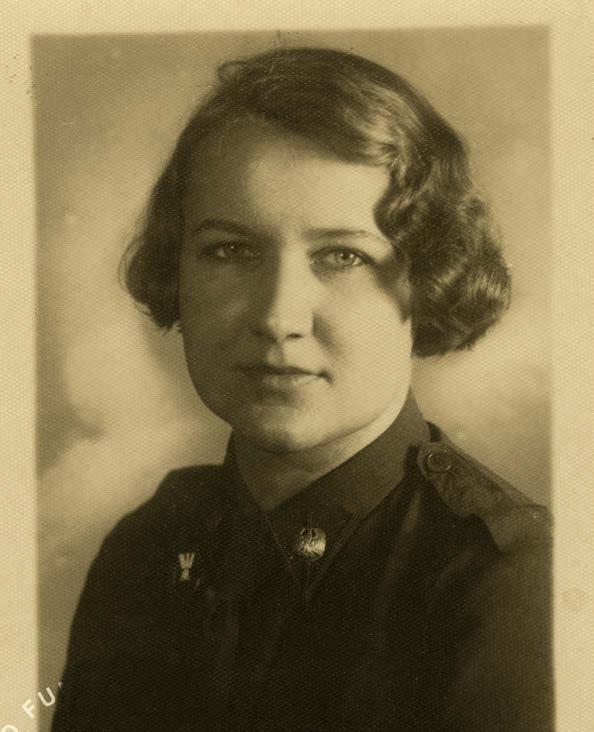
Already in the autumn of 1939, having taken the oath in Warsaw, she became a soldier of the Polish Underground State. She returned to Śląsk, where she was actively involved in creating underground structures. At the end of 1940, she began her service at the Foreign Communication unit (codename Zagroda) of Section V of the Armed Resistance and Home Army Headquarters. The unit was headed by Emilia Malessa (“Marcysia”). Zagroda was responsible for organising and maintaining courier routes to the south, north and west of Europe. Elżbieta Zawacka was a very active courier and made numerous dangerous trips, carrying reports, information or money. Thanks to her courage and fluency in German, she was very effective. At the same time she secretly studied pedagogy in Warsaw and worked as a teacher at secondary schools.
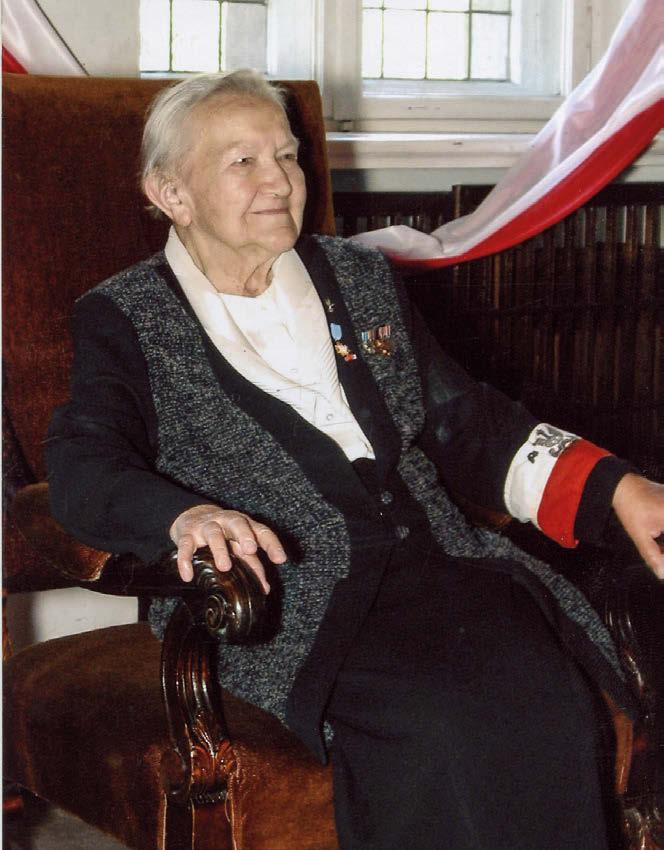
At the beginning of 1943, as an emissary of Commander-in-Chief of the Home Army, General Stefan “Grot” Rowecki, she was transported to London. One of the purposes of the mission was to have the Polish authorities settle the issues connected with women’s service in the Home Army. Elżbieta Zawacka underwent an appropriate parachute training and returned to Poland in September, 1943, dropped with a parachute together with the Home Army paratroopers, Cichociemni. She then continued her underground activity and participated in the Warsaw Uprising.
After the war, Elżbieta Zawacka worked as a teacher in Toruń, Łódź and Olsztyn. In 1951, she was arrested by the Department of Security. She was accused of espionage and following the trial was sentenced to ten years in prison. She was released in 1955. She then continued to teach at schools and also conducted scientific work - in 1965, she earned a doctoral degree and in 1973, she was awarded habilitation in pedagogy. She worked at universities, but persecuted by the then authorities, she retired in 1978.
Elżbieta Zawacka still continued her voluntary work. Starting from 1960s, she collected documents about the Home Army and PWK. She believed that the activities of those organisations should be commemorated, and so should be the military service of Polish women. In 1990, she instigated the establishment of the Foundation “Pomeranian Archive of the Home Army” (later the “Pomeranian Archive and Museum of the Home Army and the Military Service of Polish Women”, the Foundation of General Elżbieta Zawacka). Today it is one of the most important places dedicated to the history of the Home Army and military service of women.
In 1996, Elżbieta Zawacka was awarded the title of professor of humanities, and in 2006, she was promoted to the rank of brigade general. On numerous occasions she was awarded the highest Polish orders and decorations. She died on January 10, 2009, in Toruń, Poland.
dr hab. Maciej Krotofil, prof. UMK Photos from the collection of the Foundation of Elżbieta Zawacka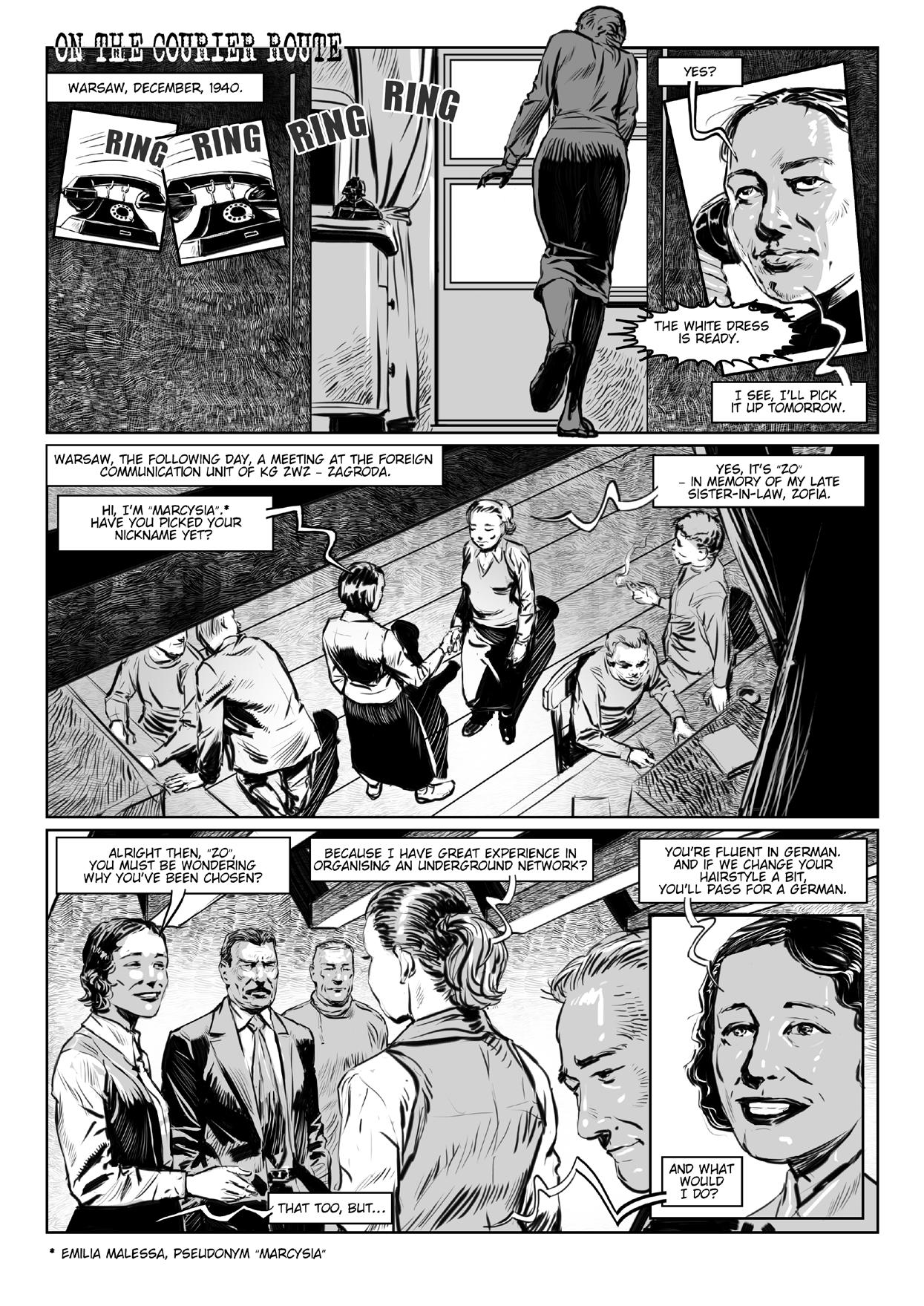
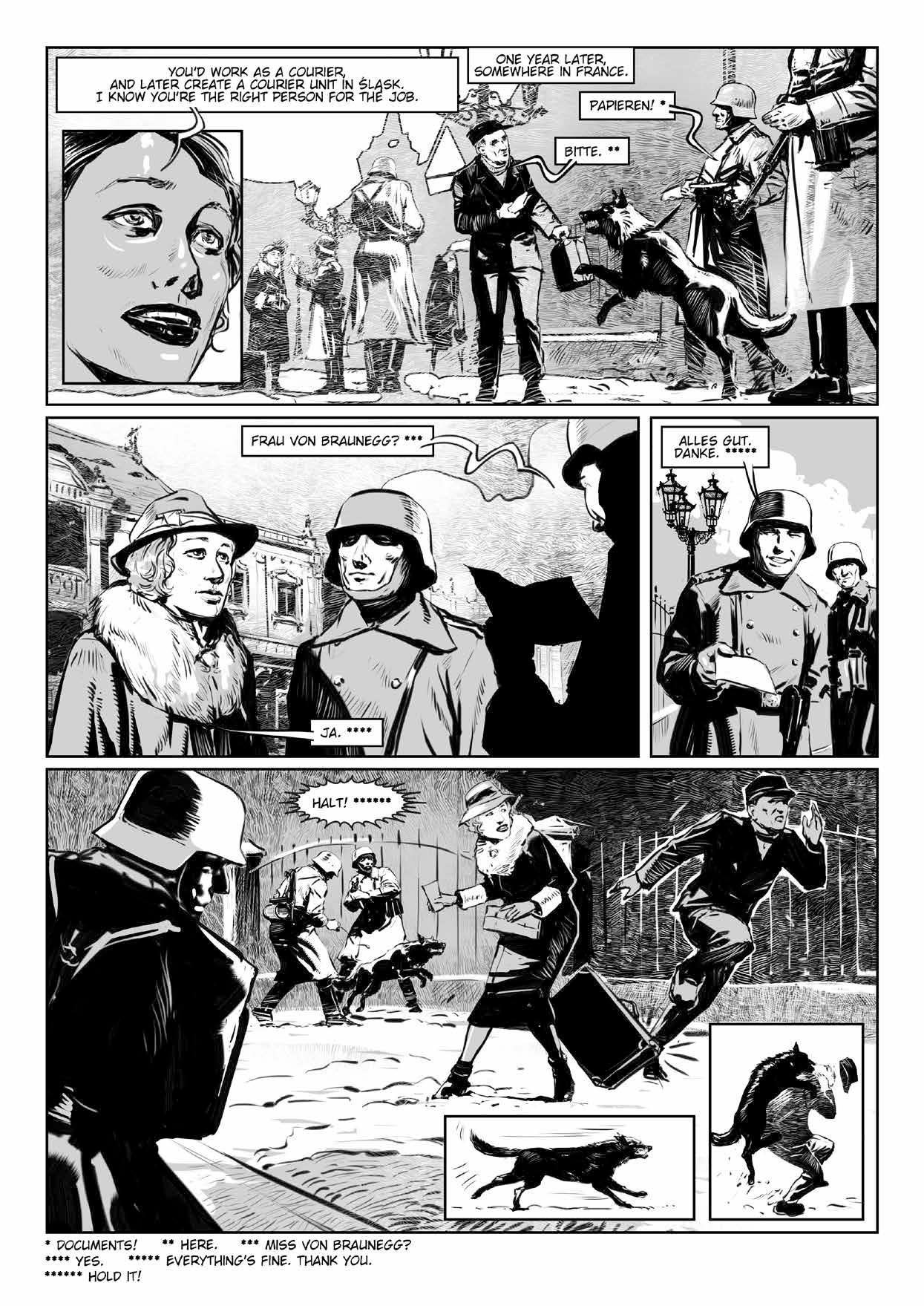
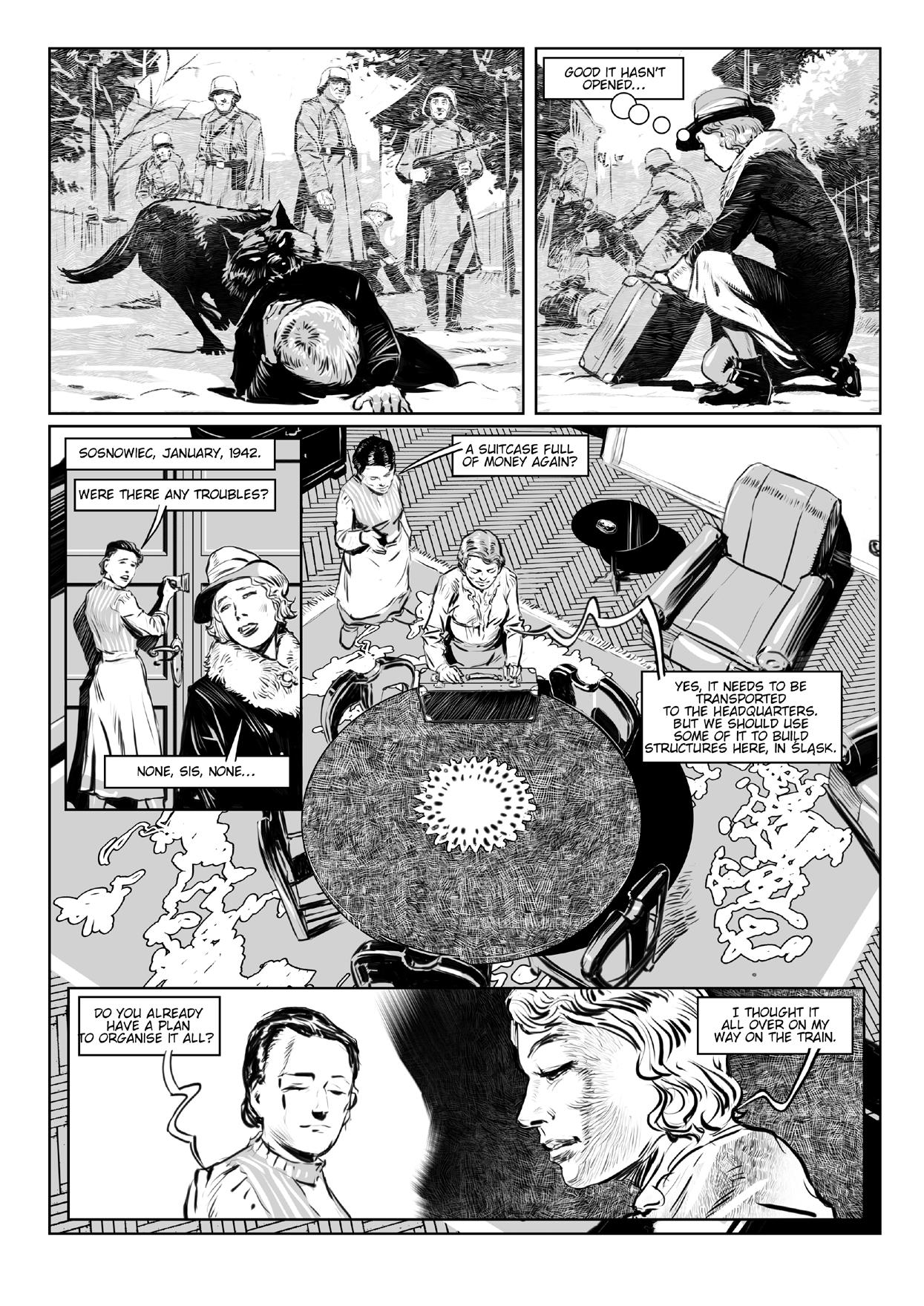
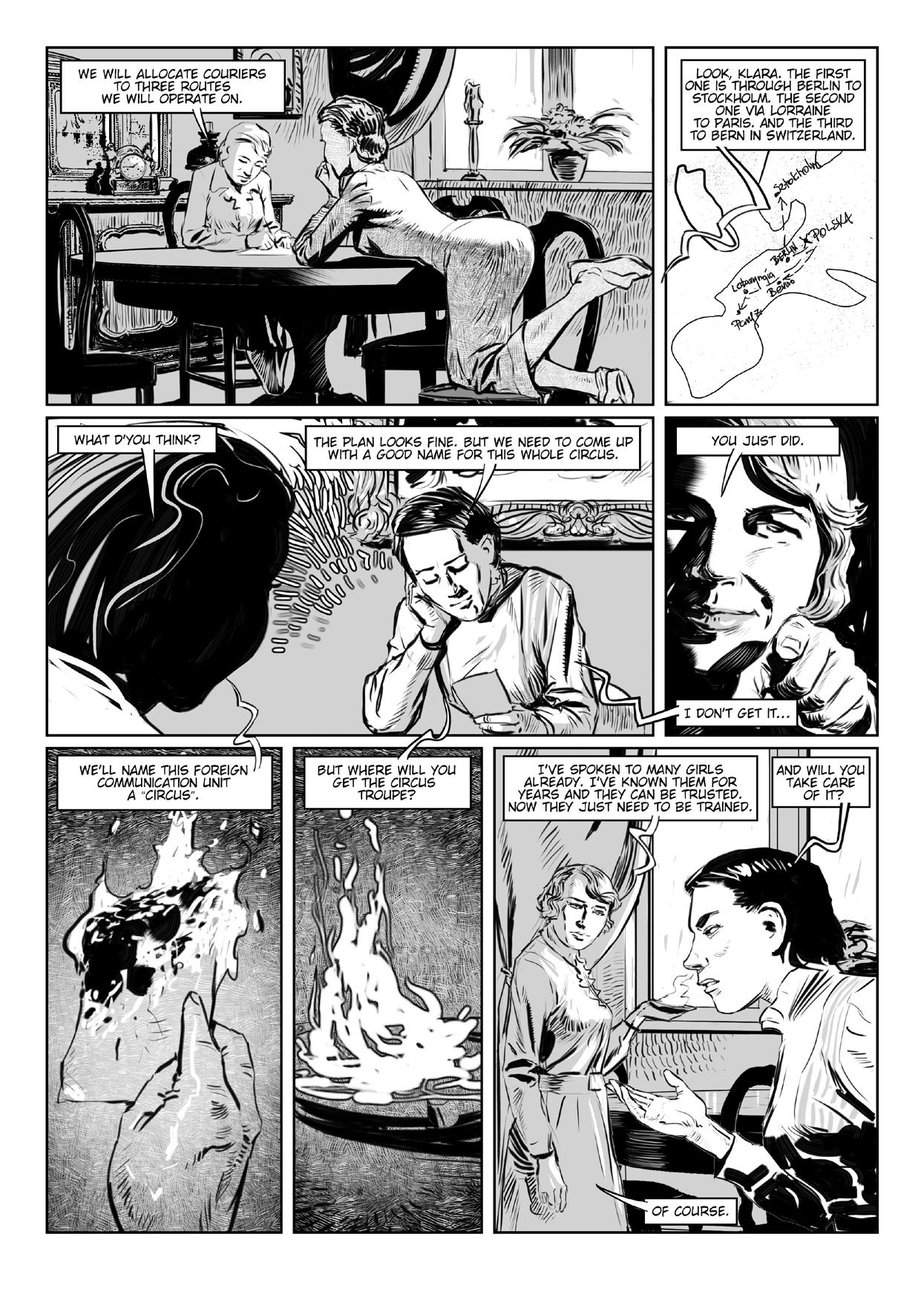
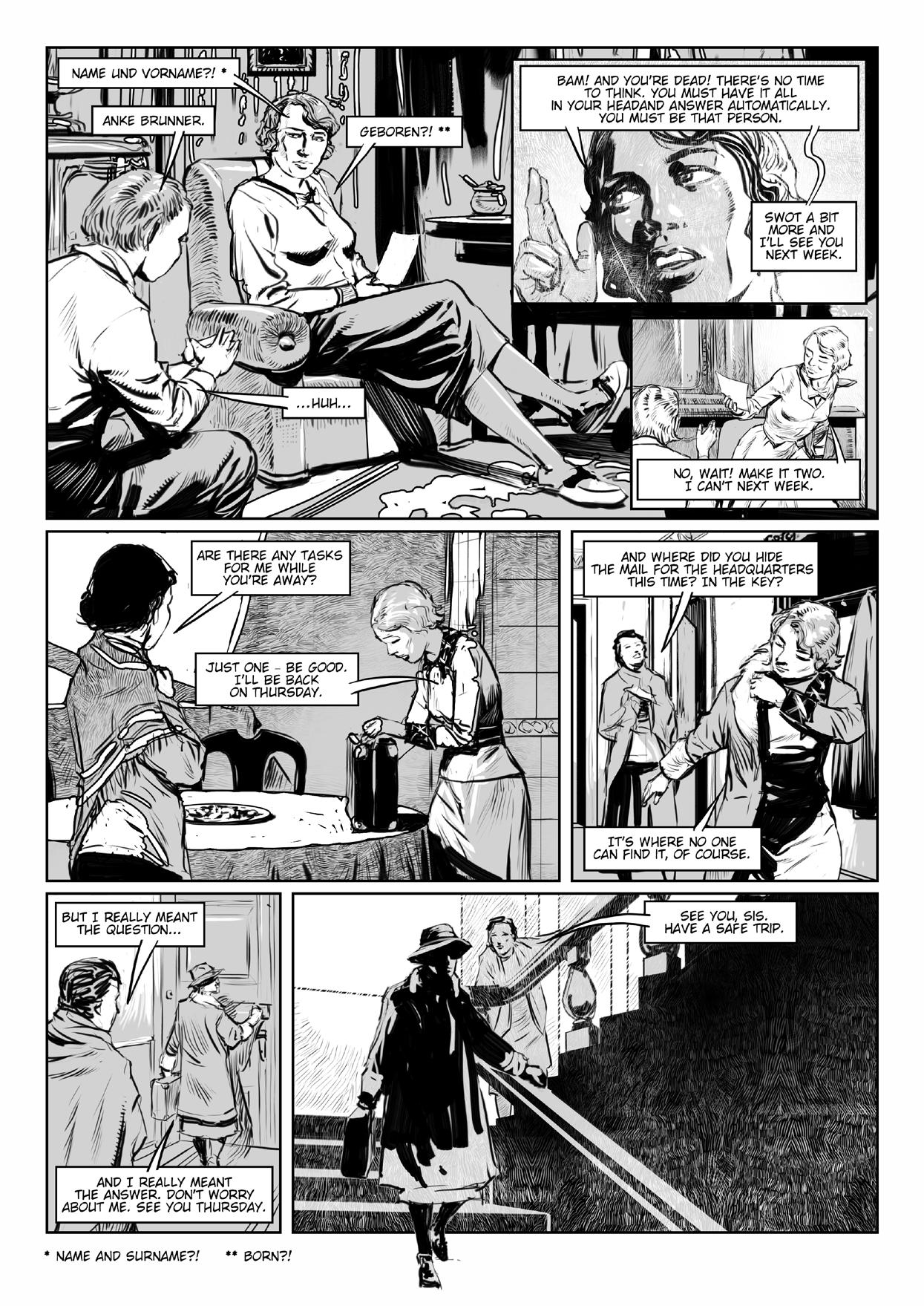
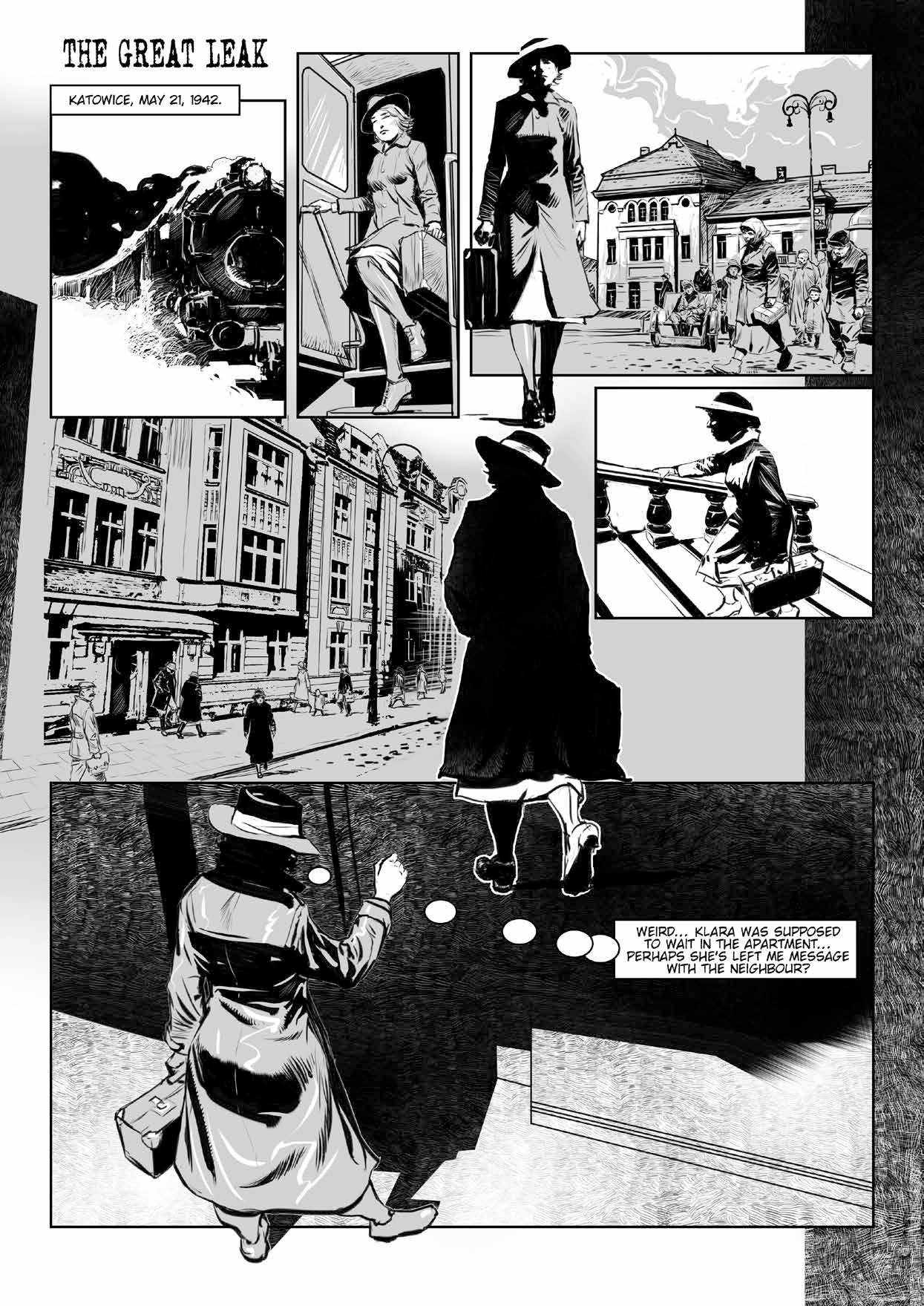
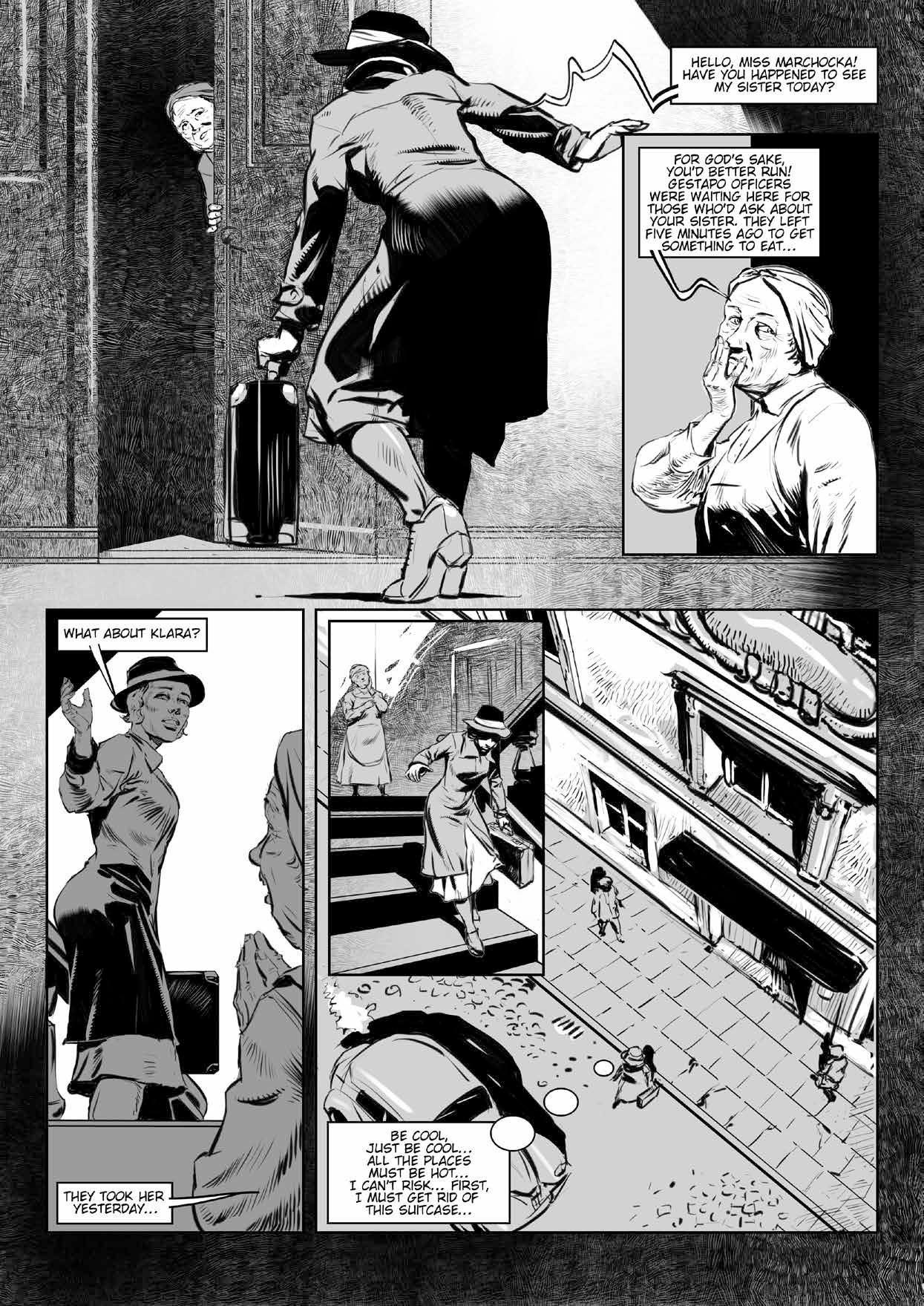
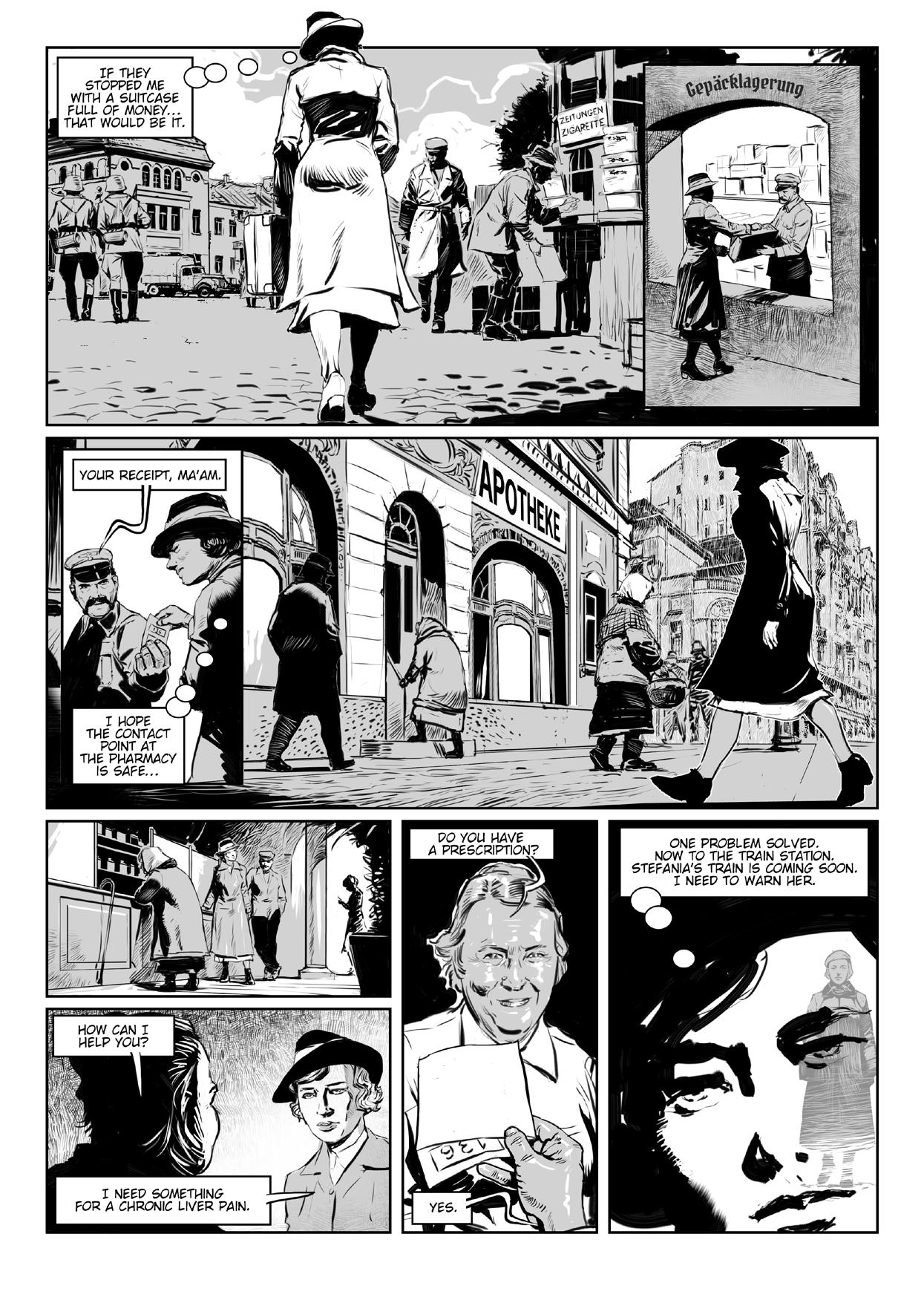
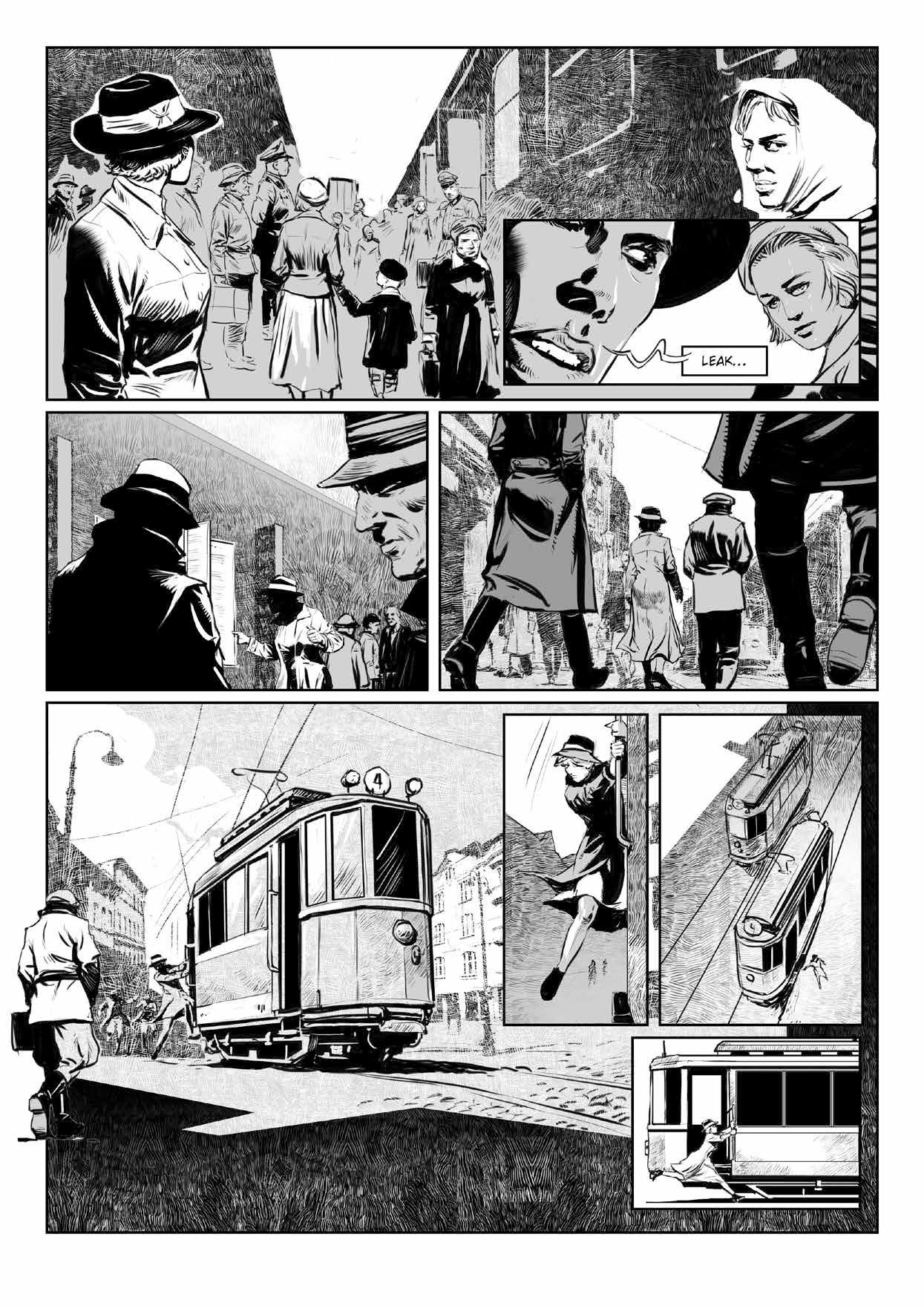
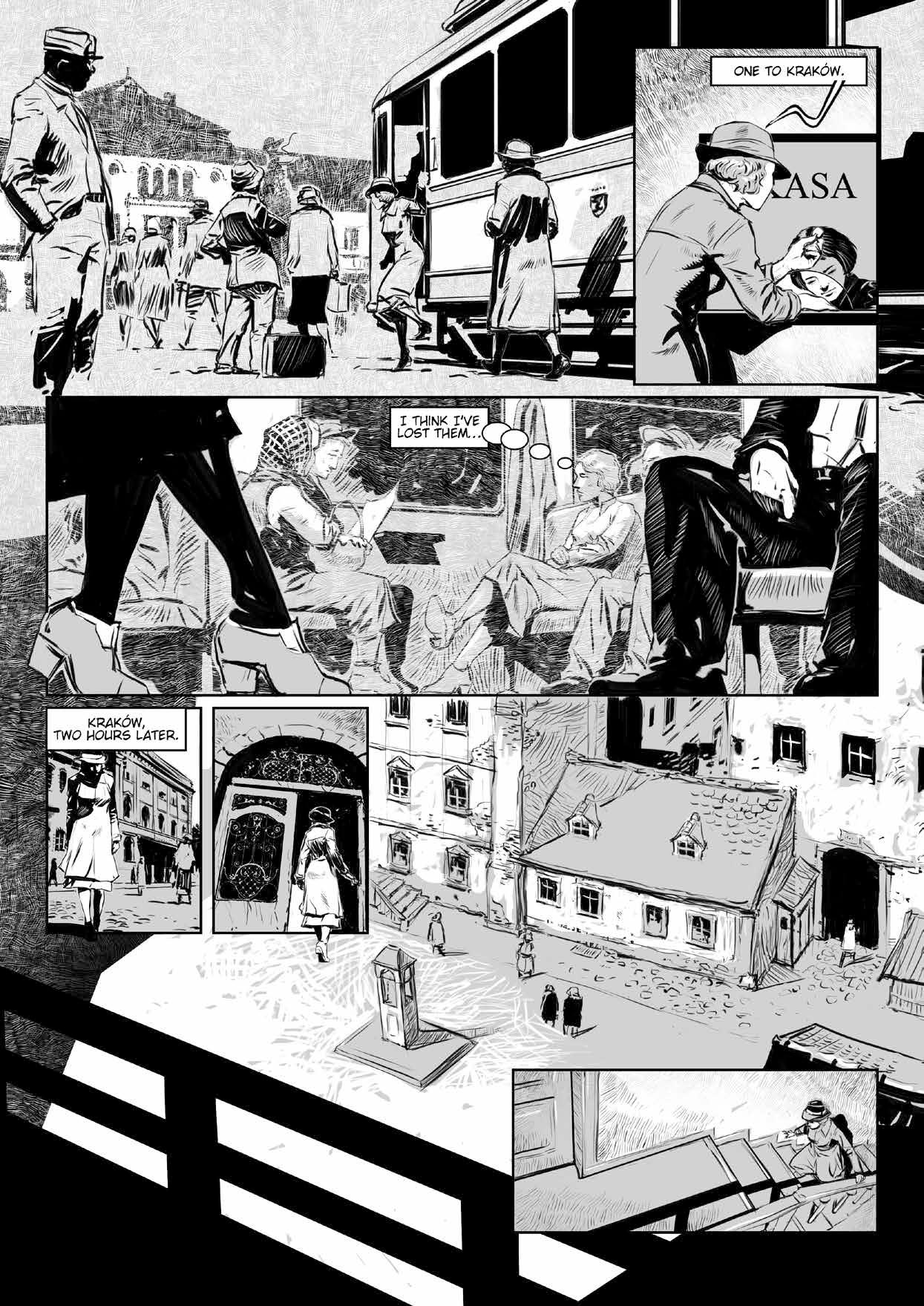
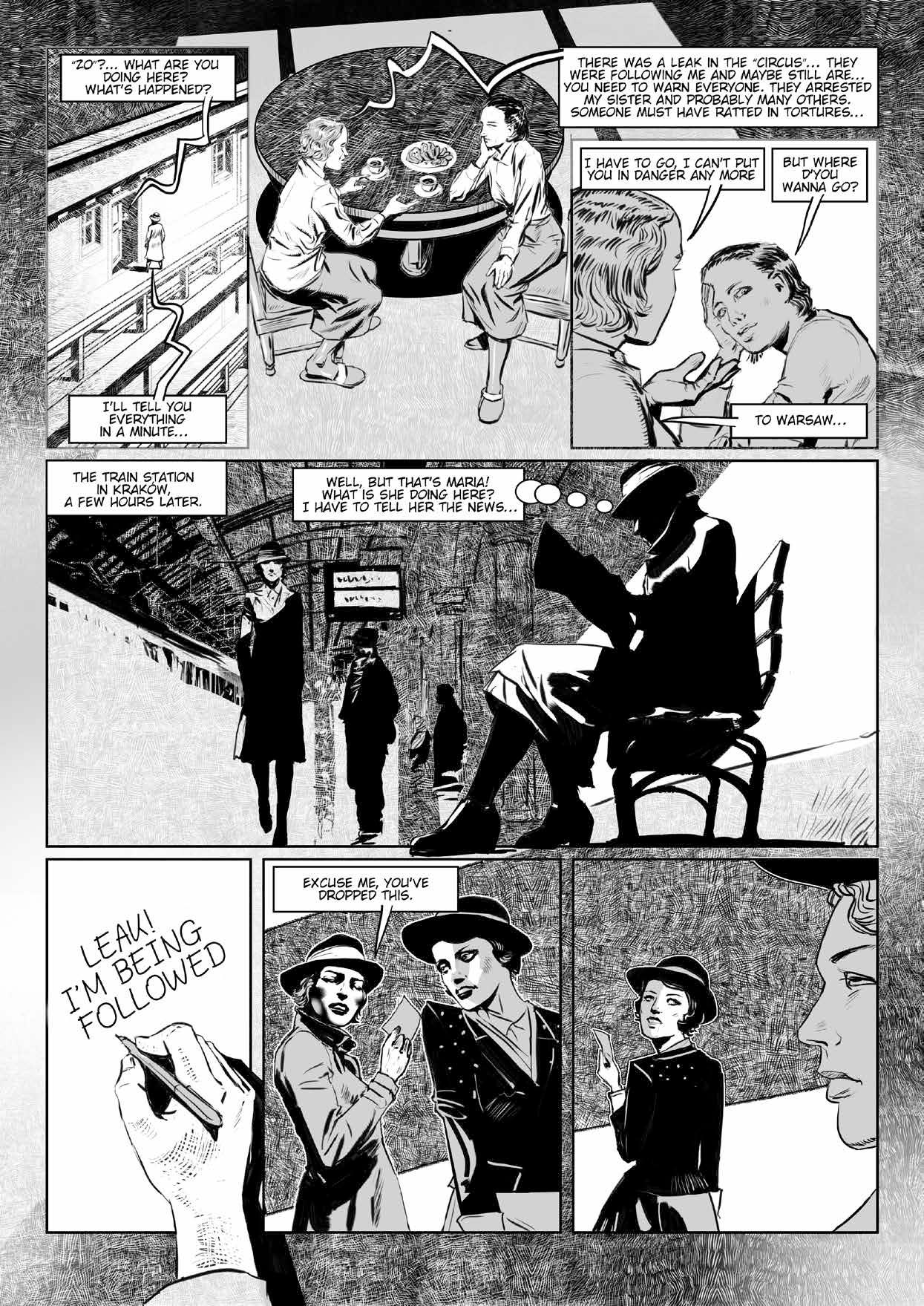
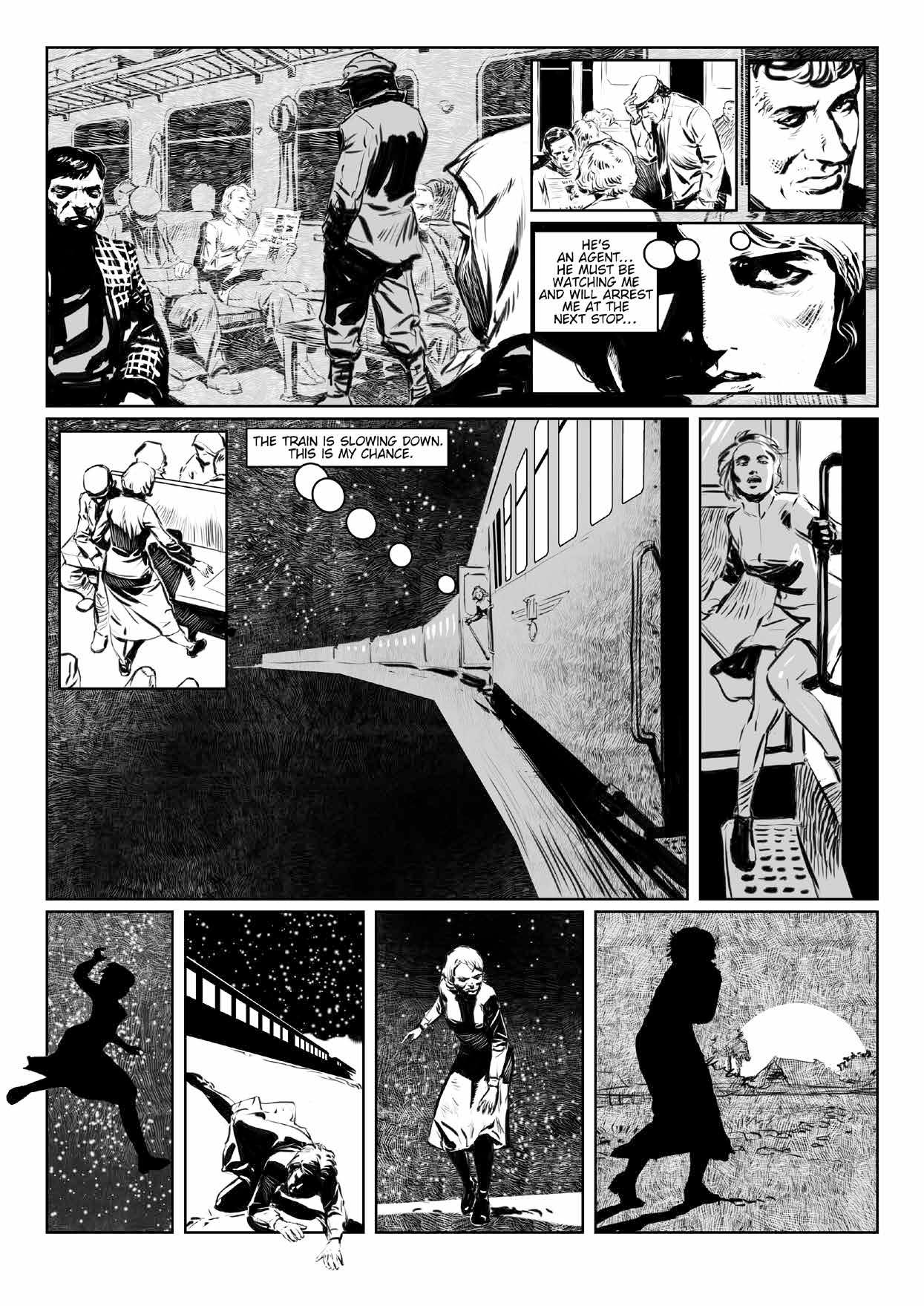
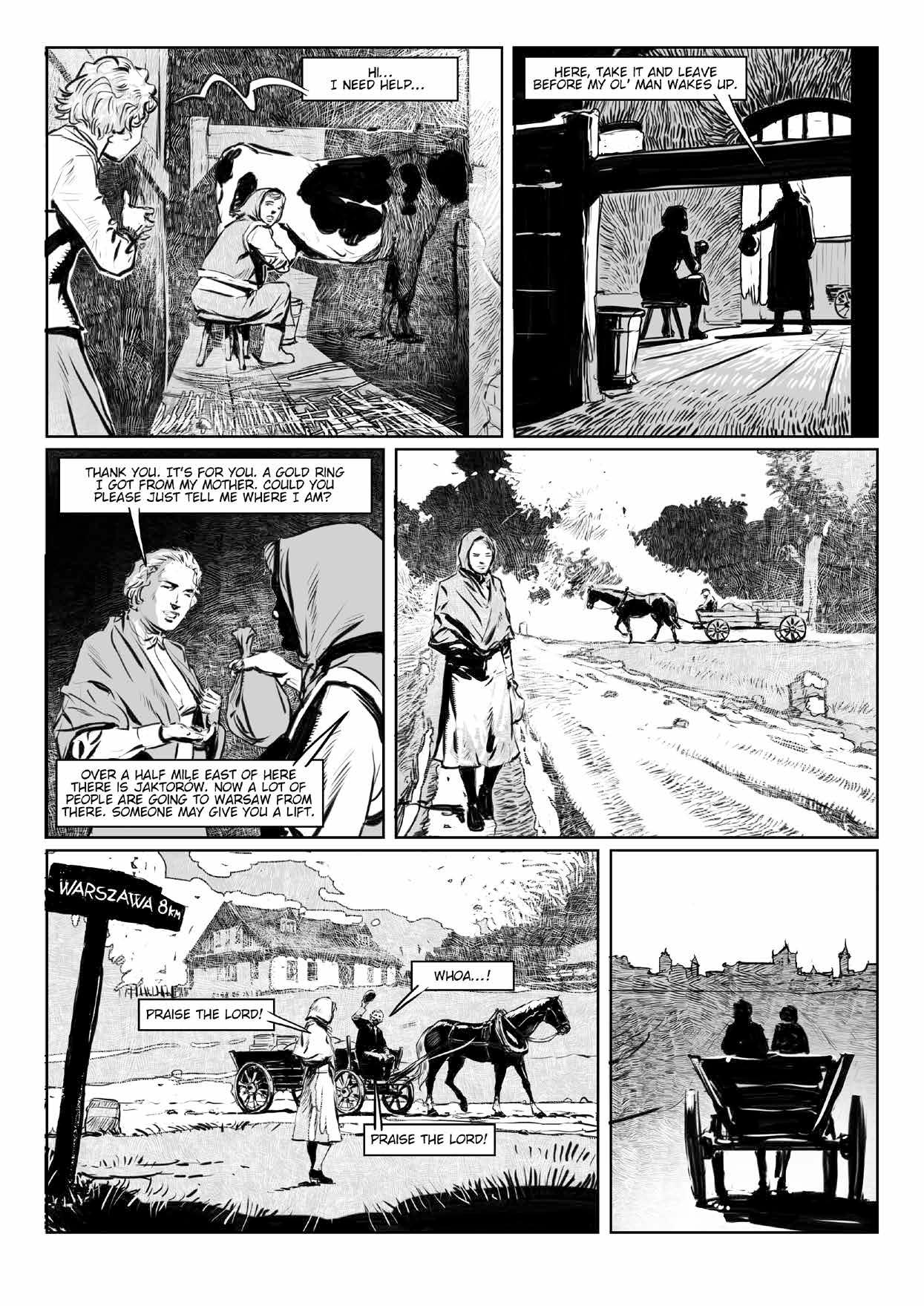
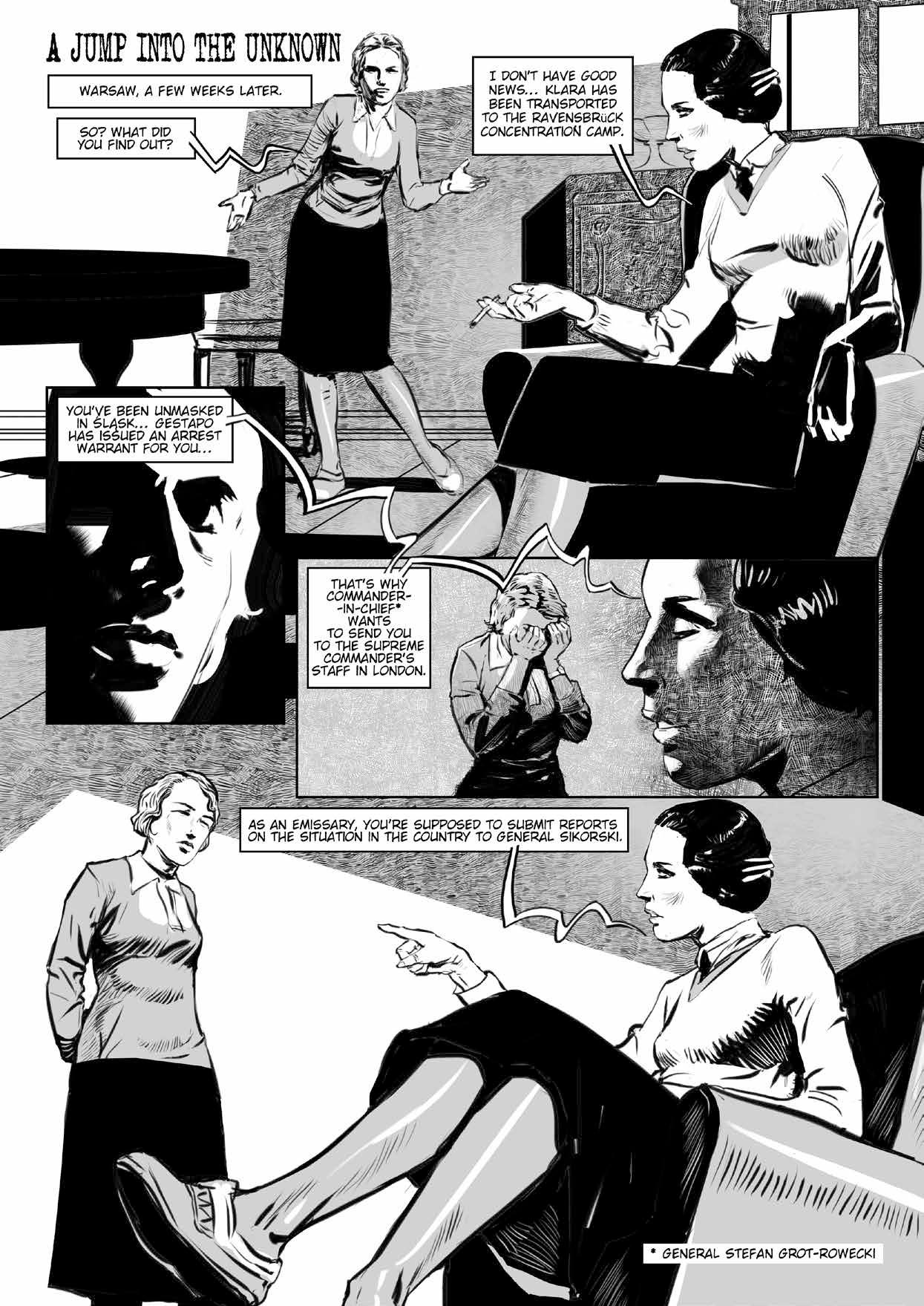
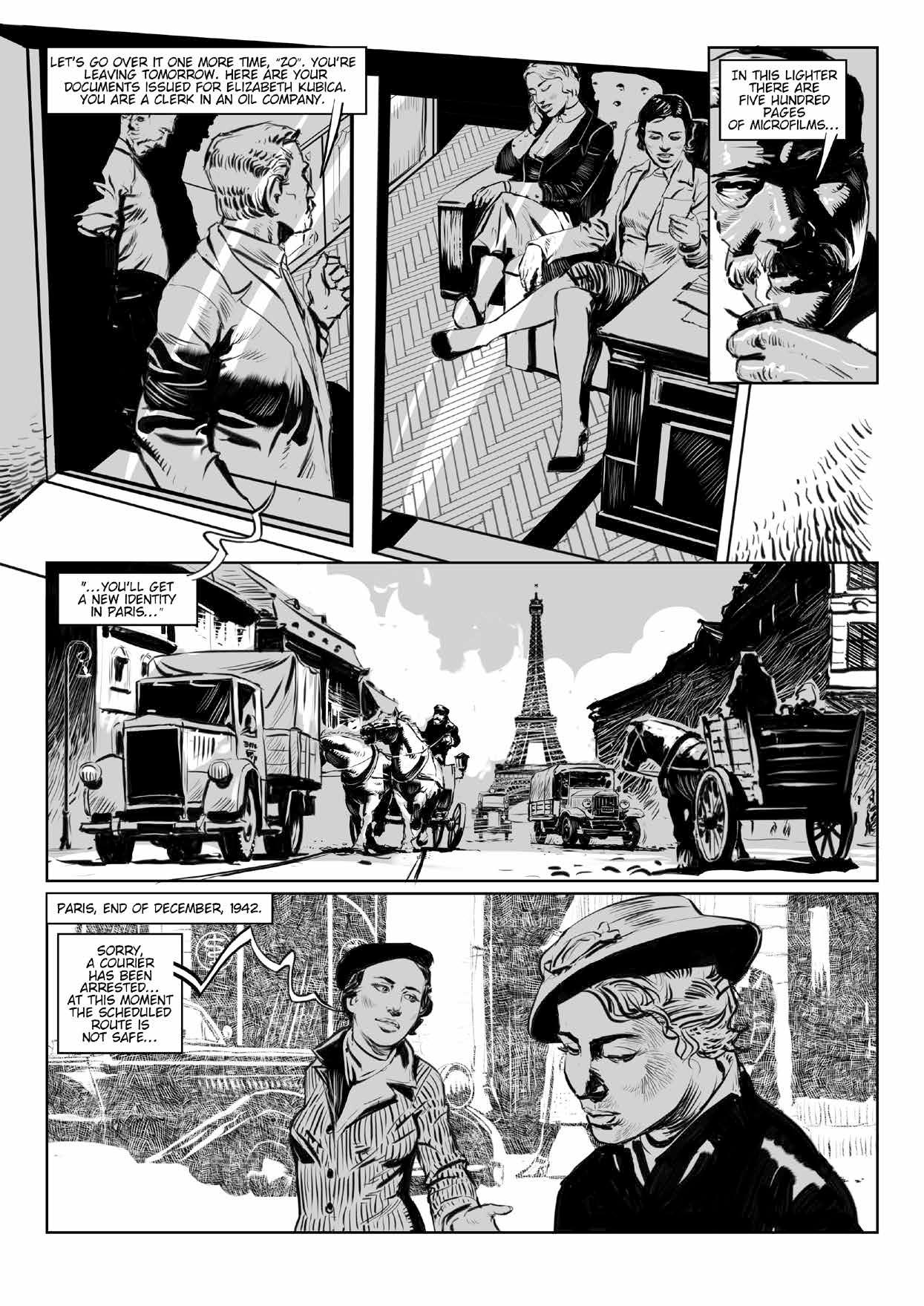
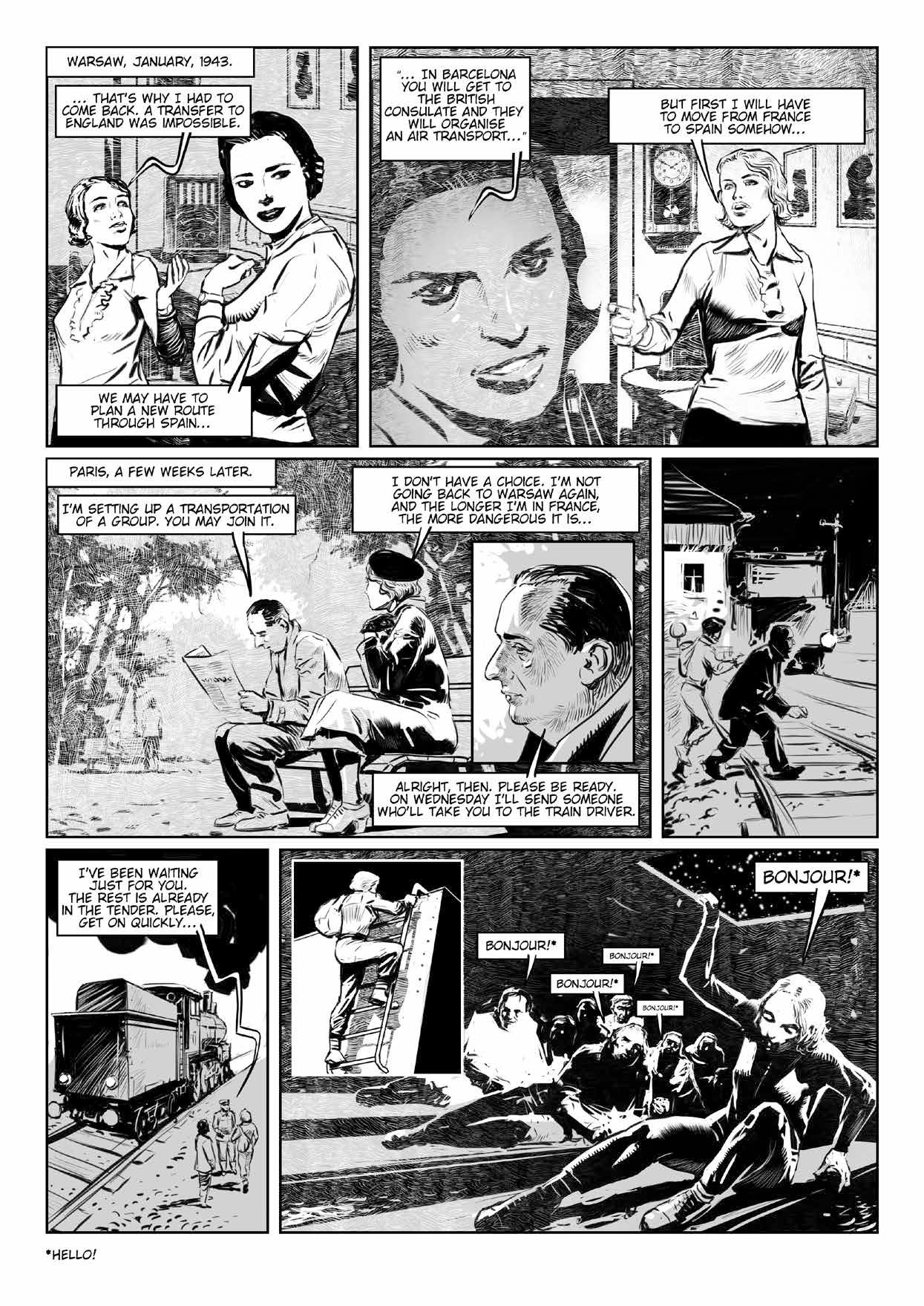
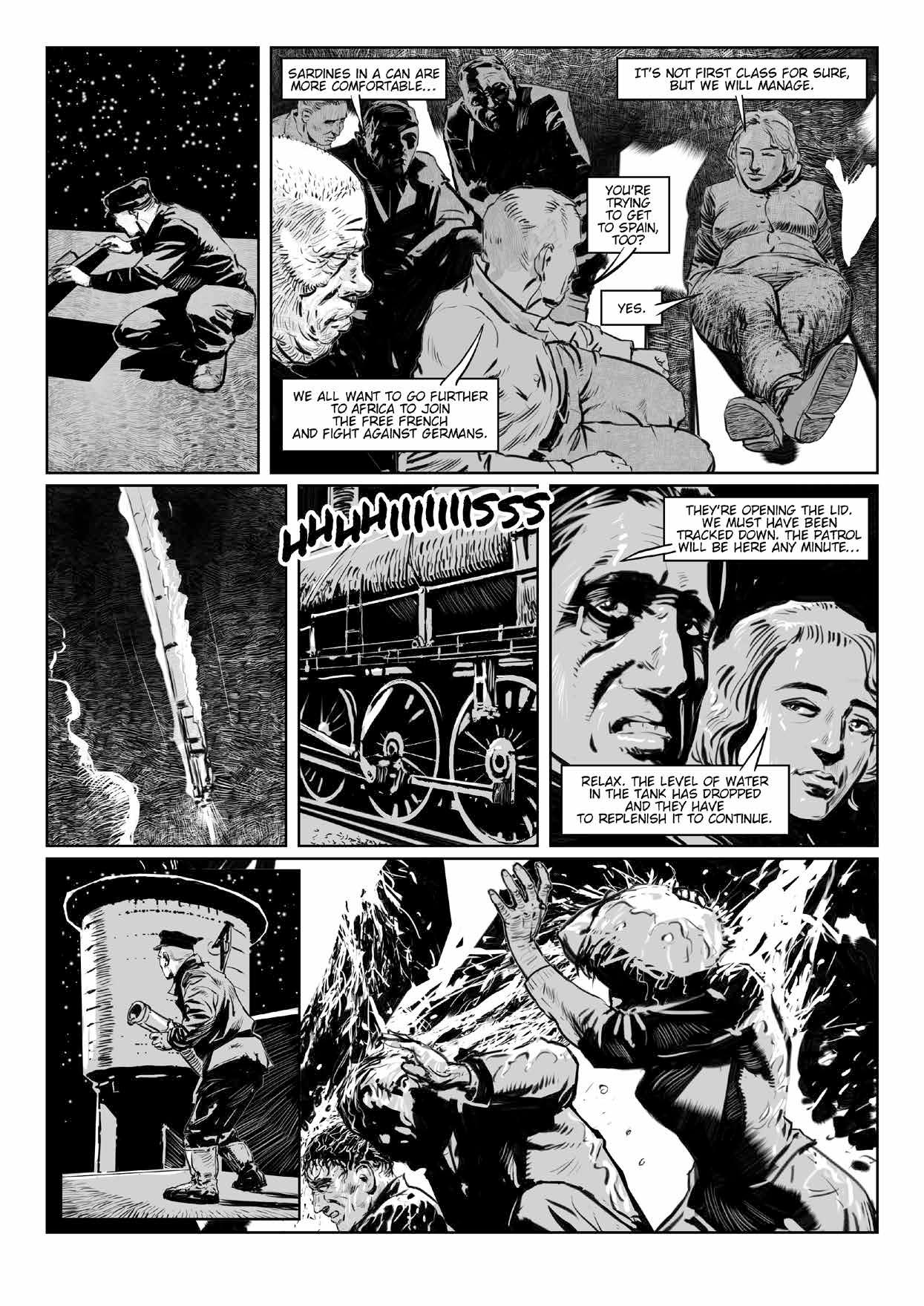
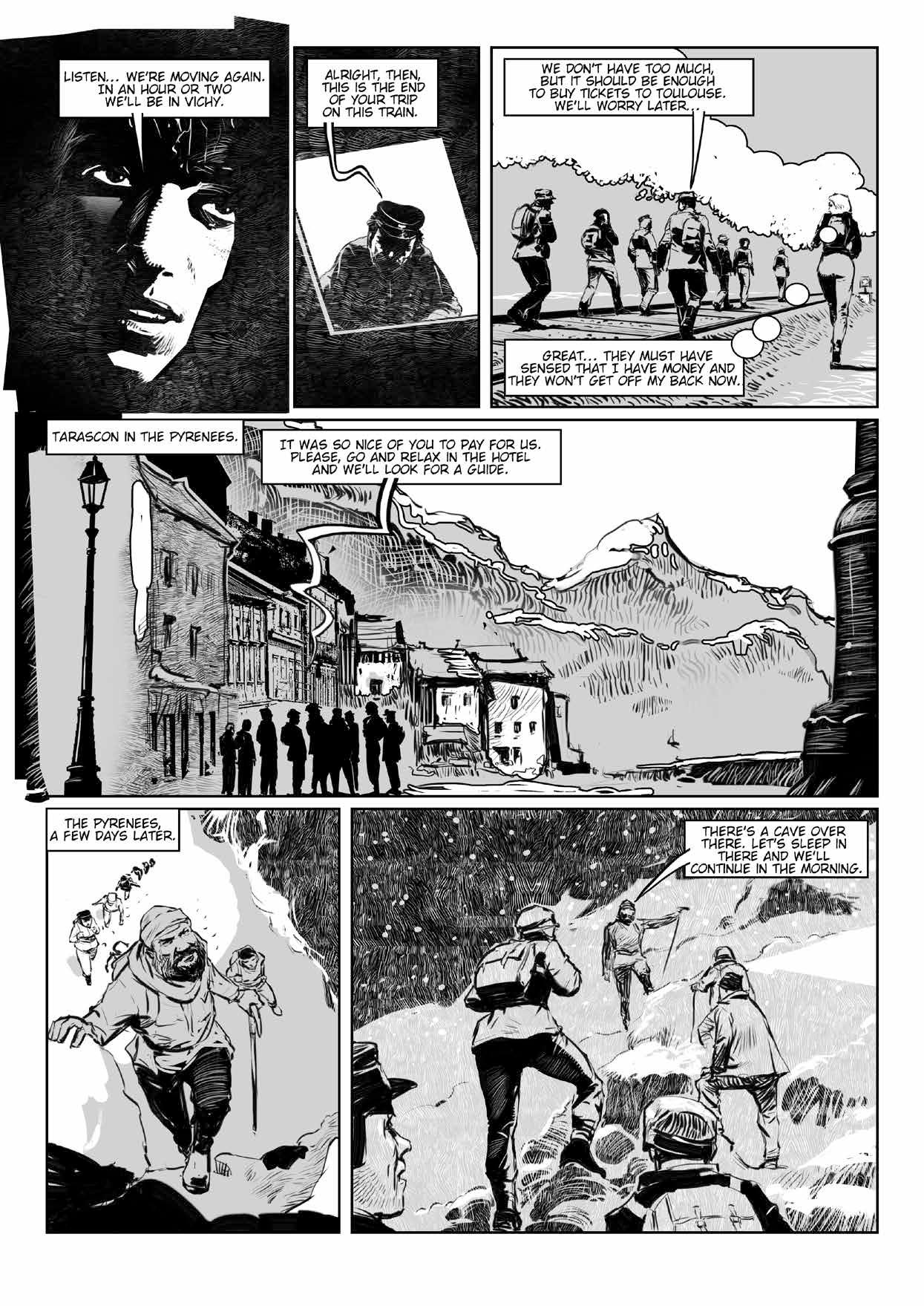
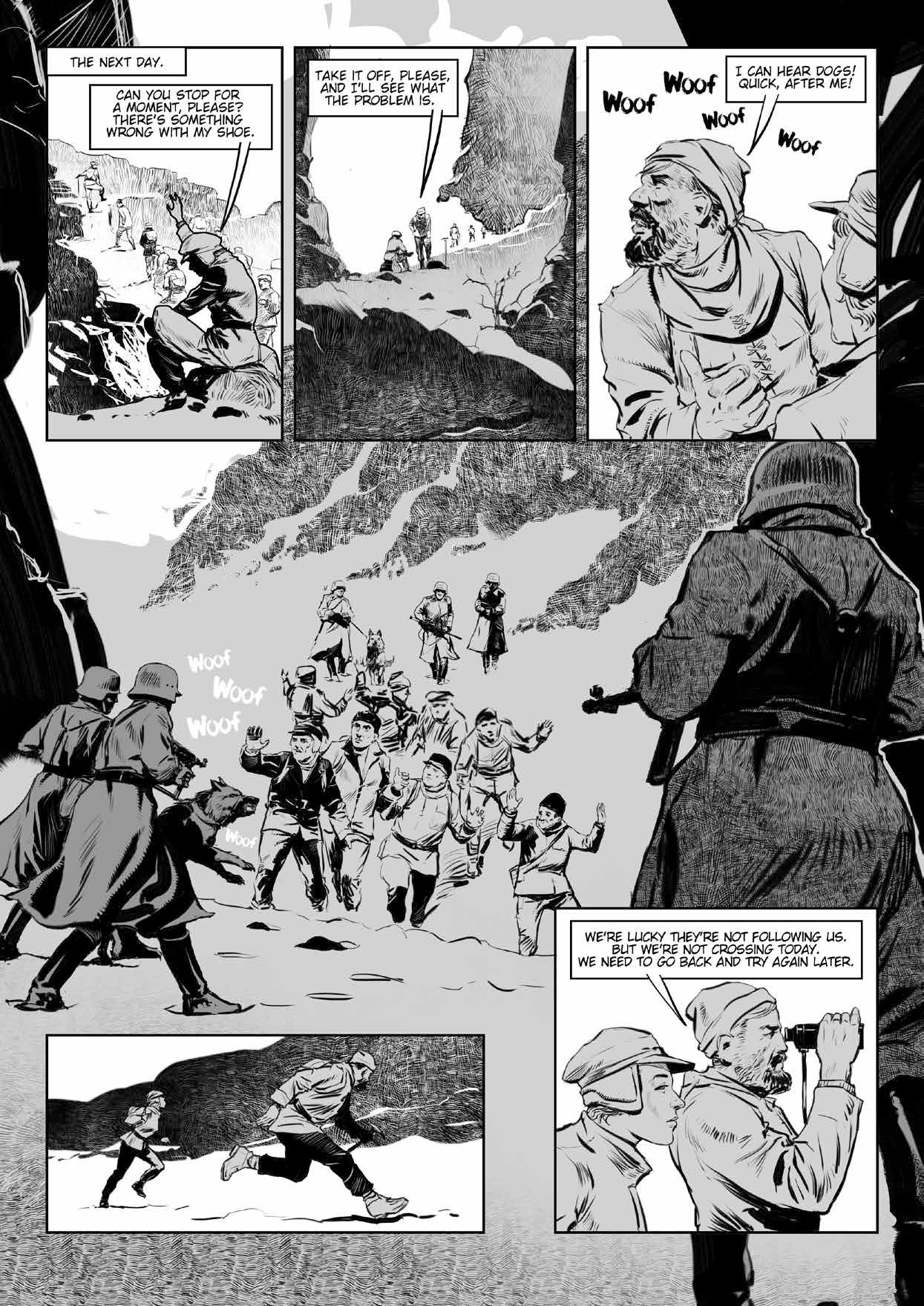
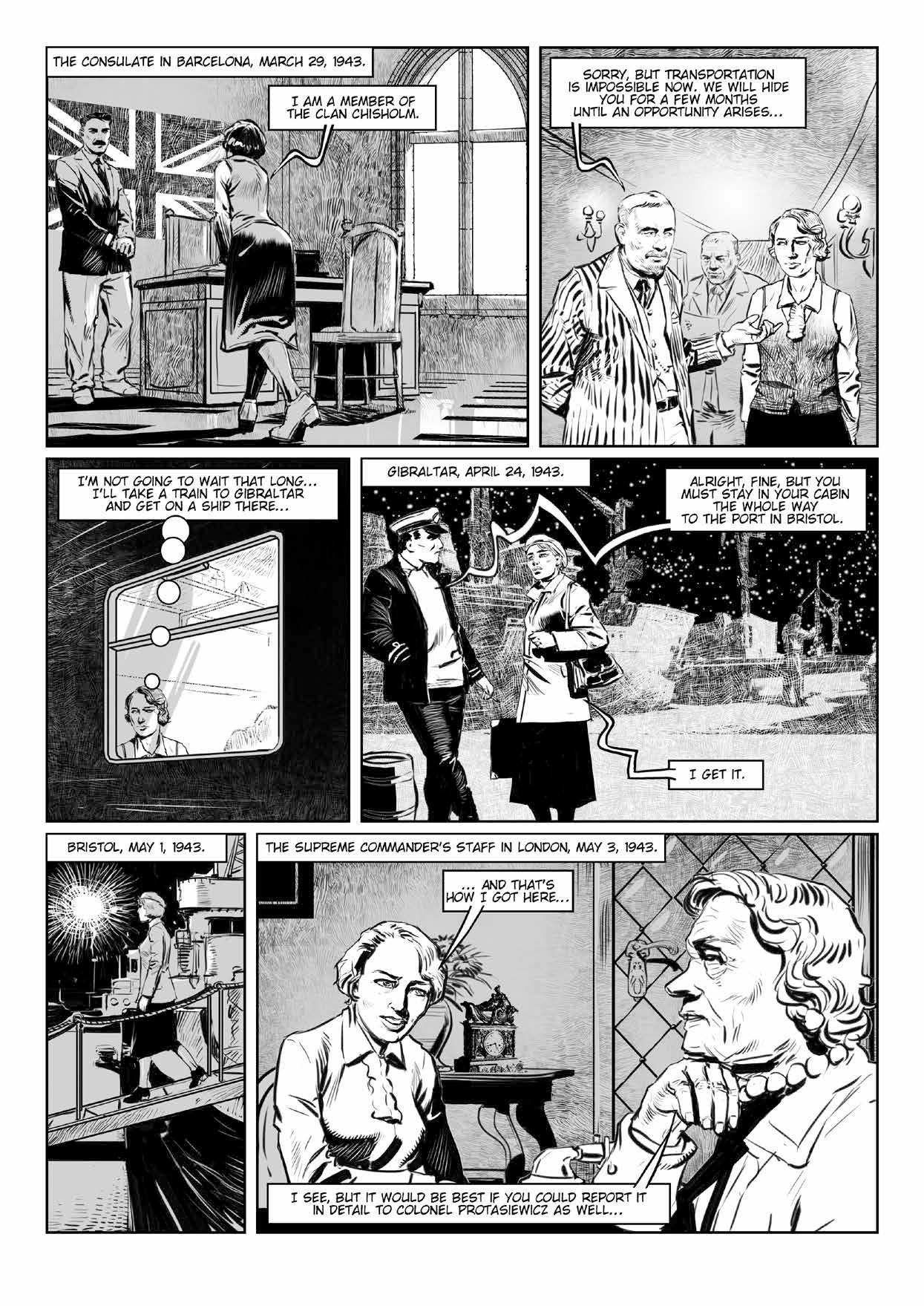
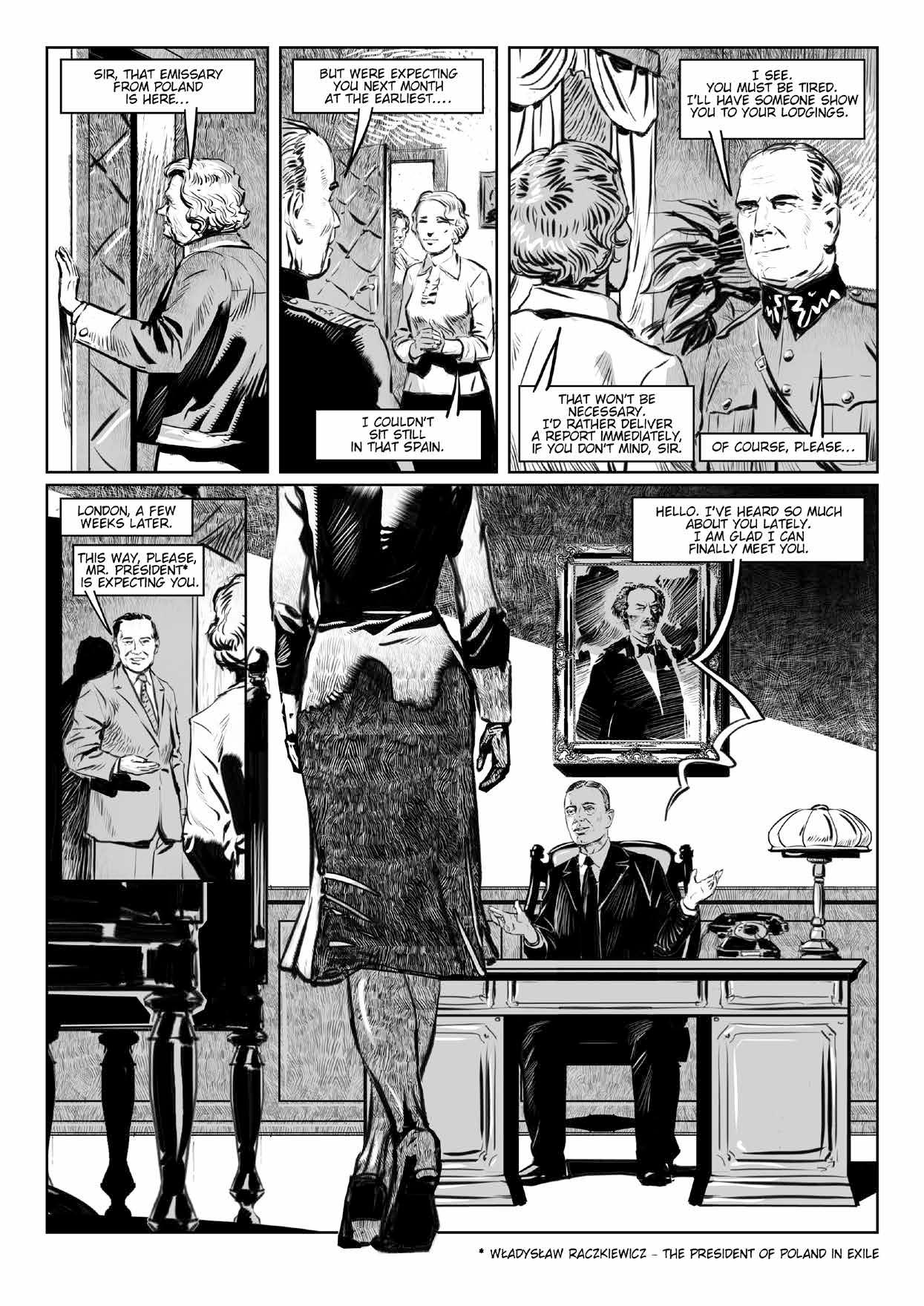
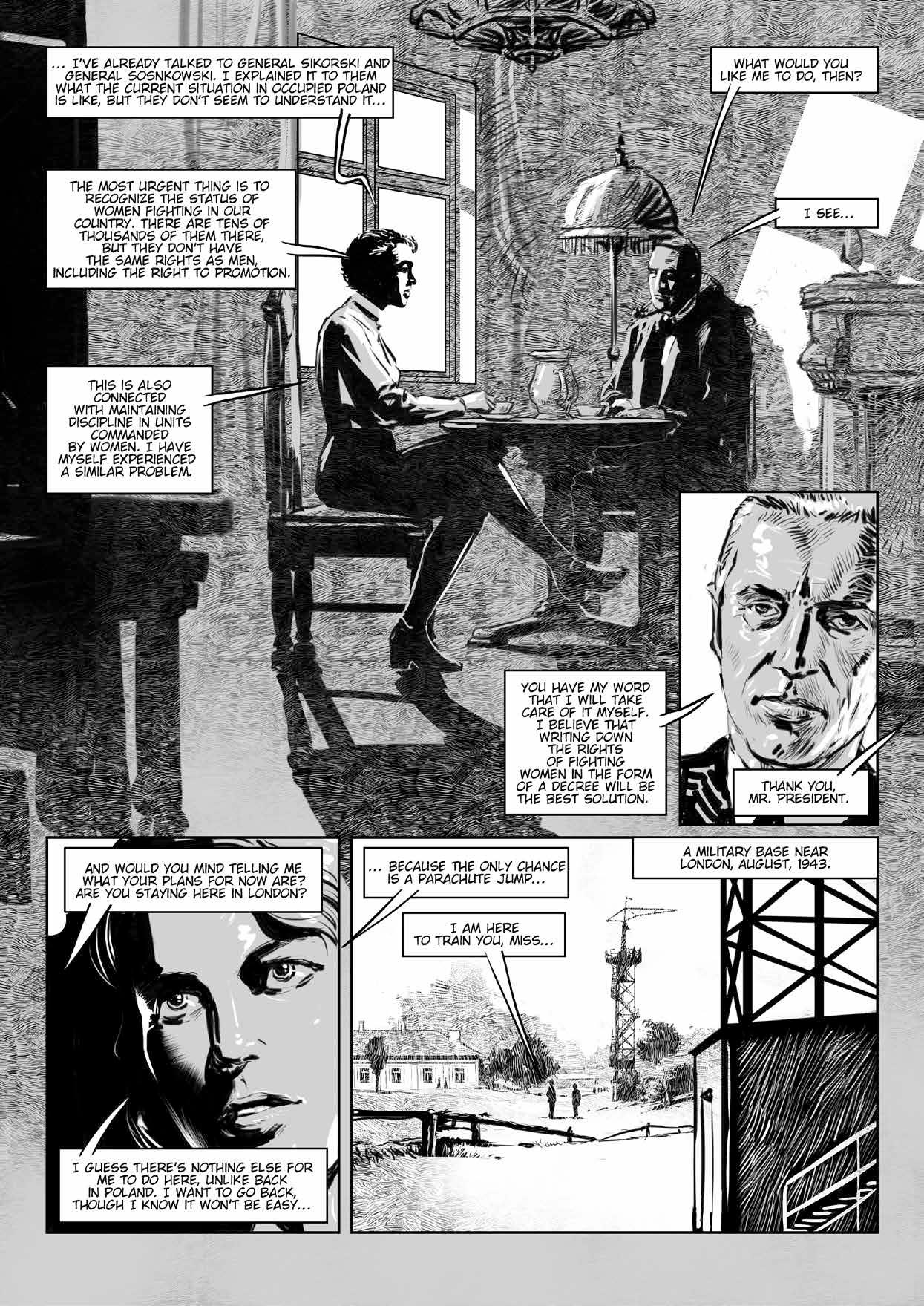
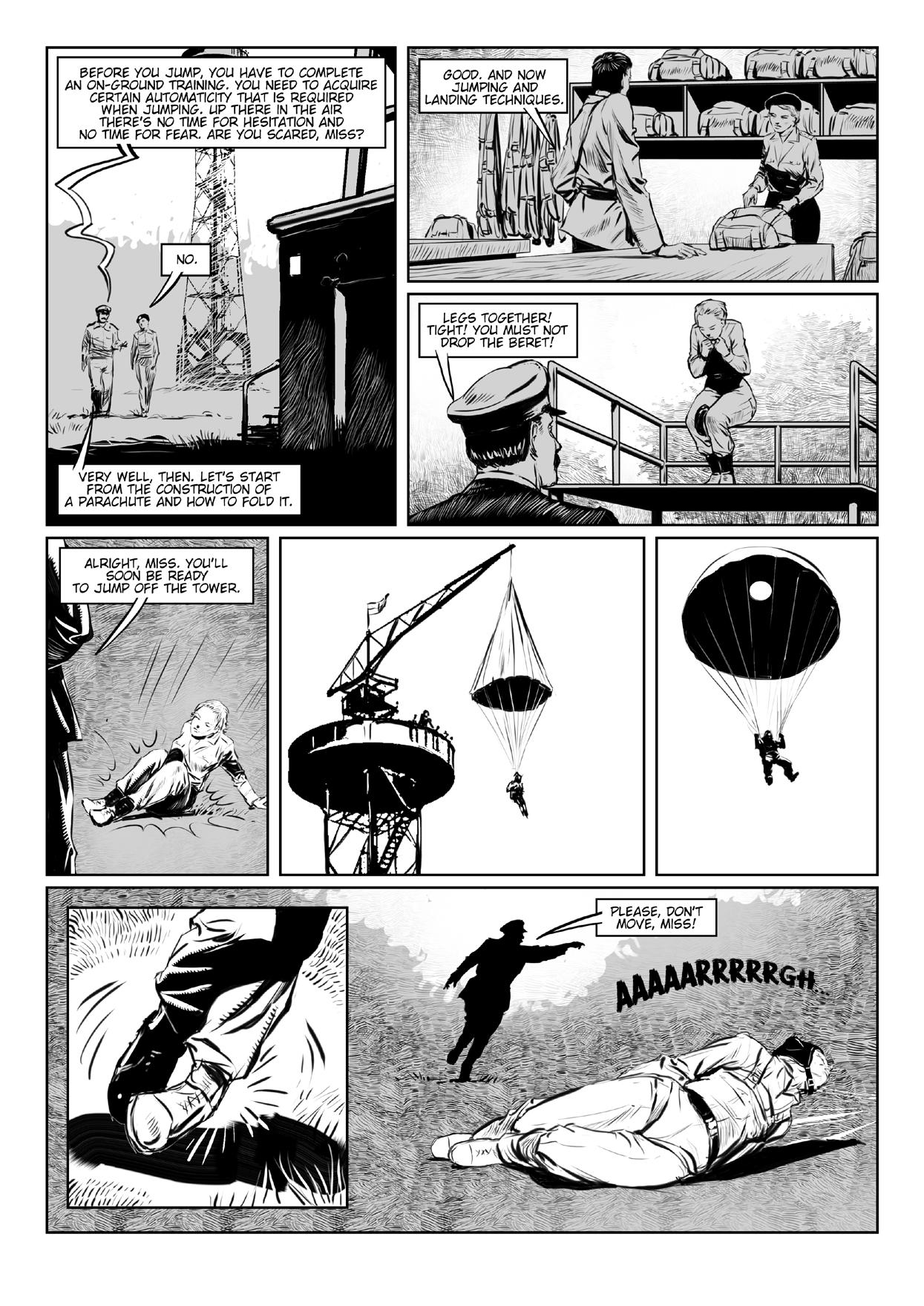
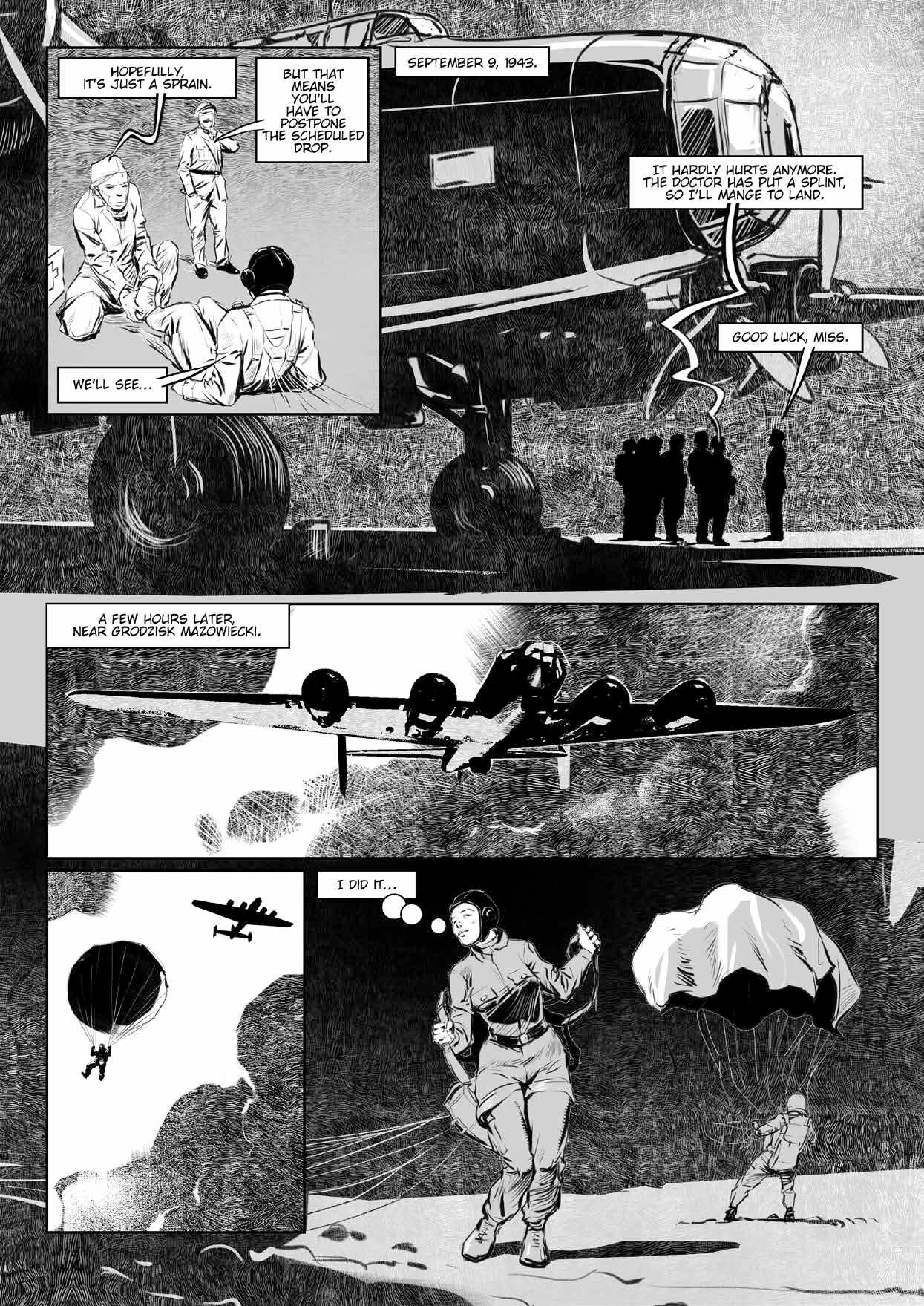
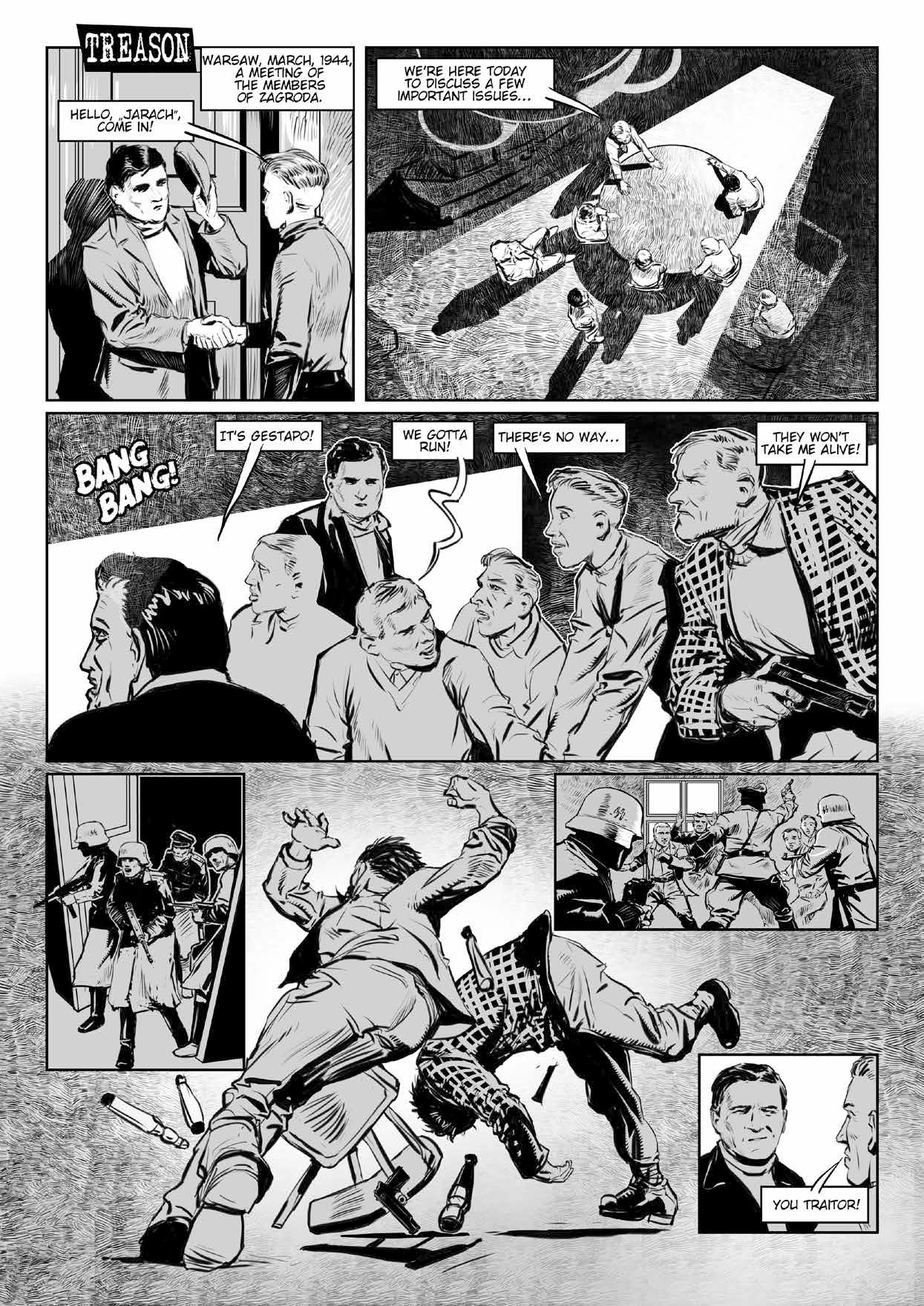
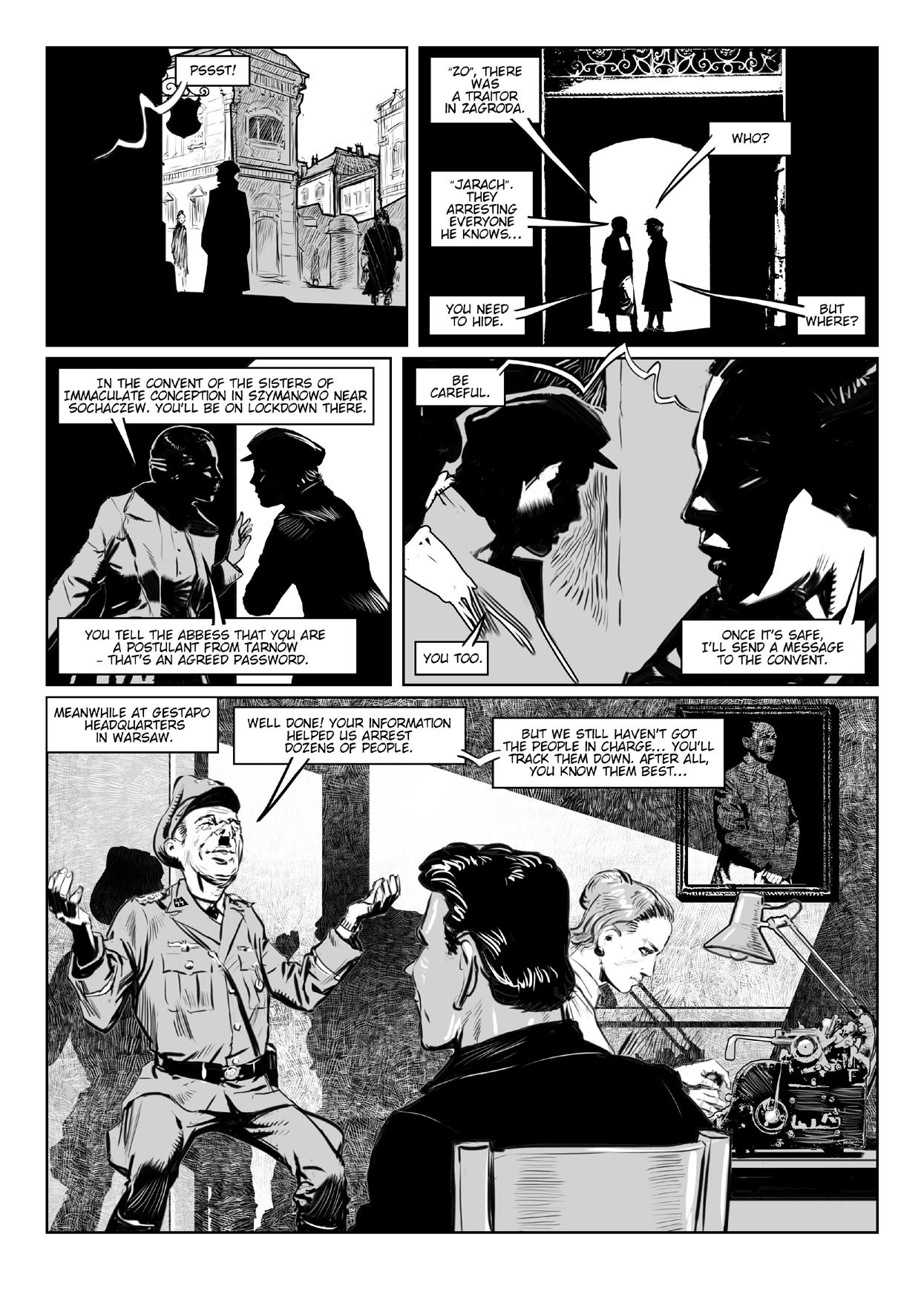
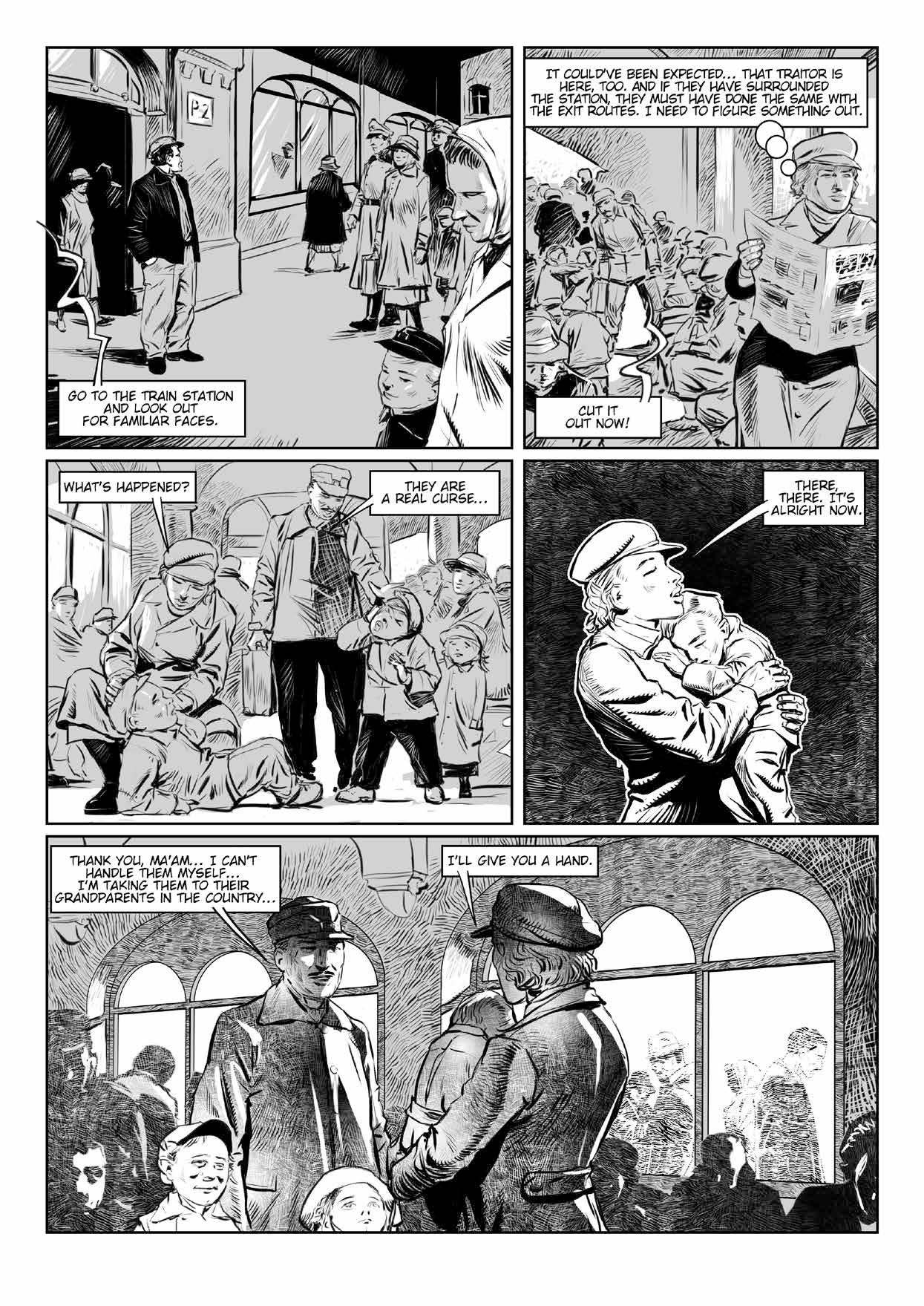
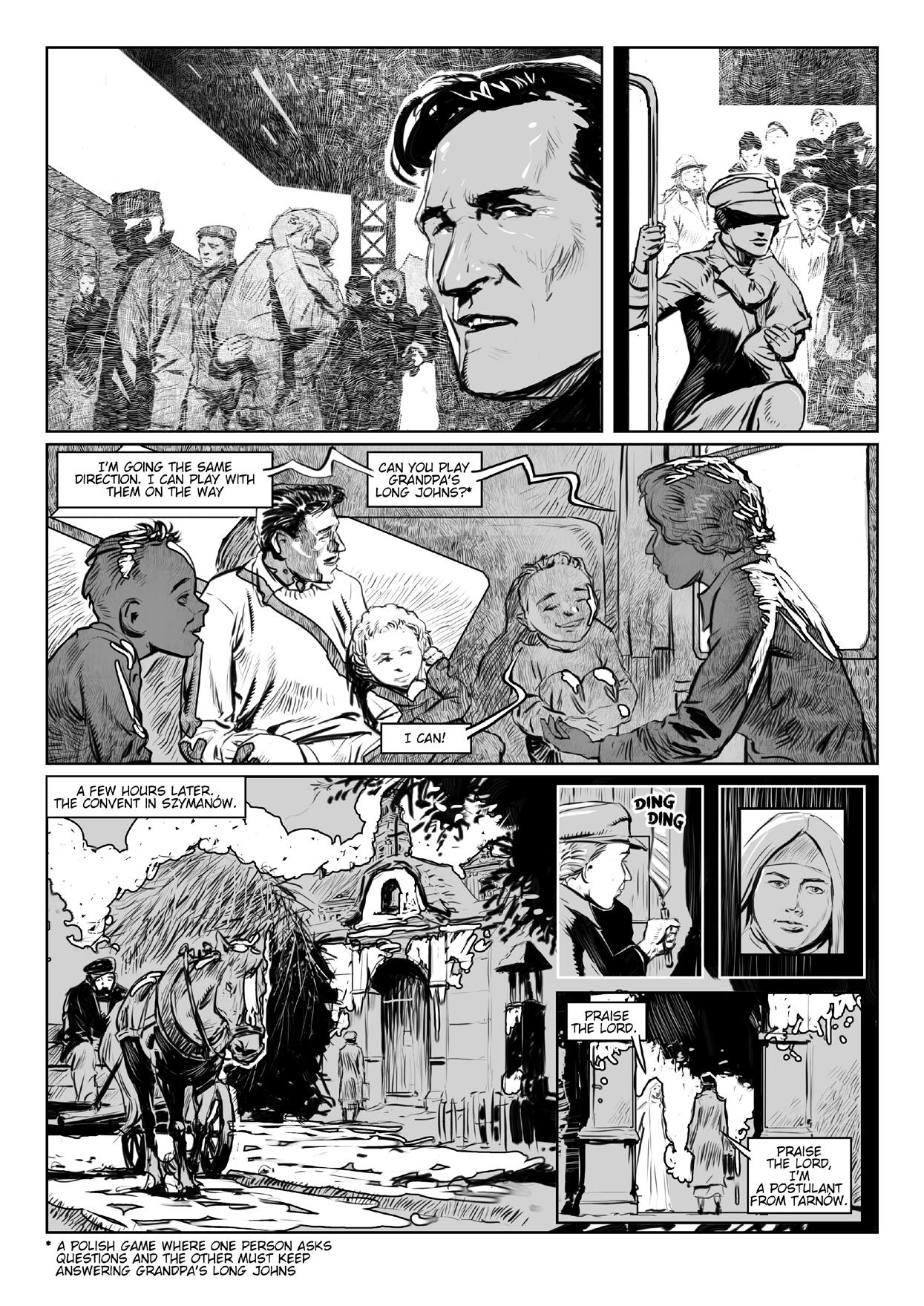
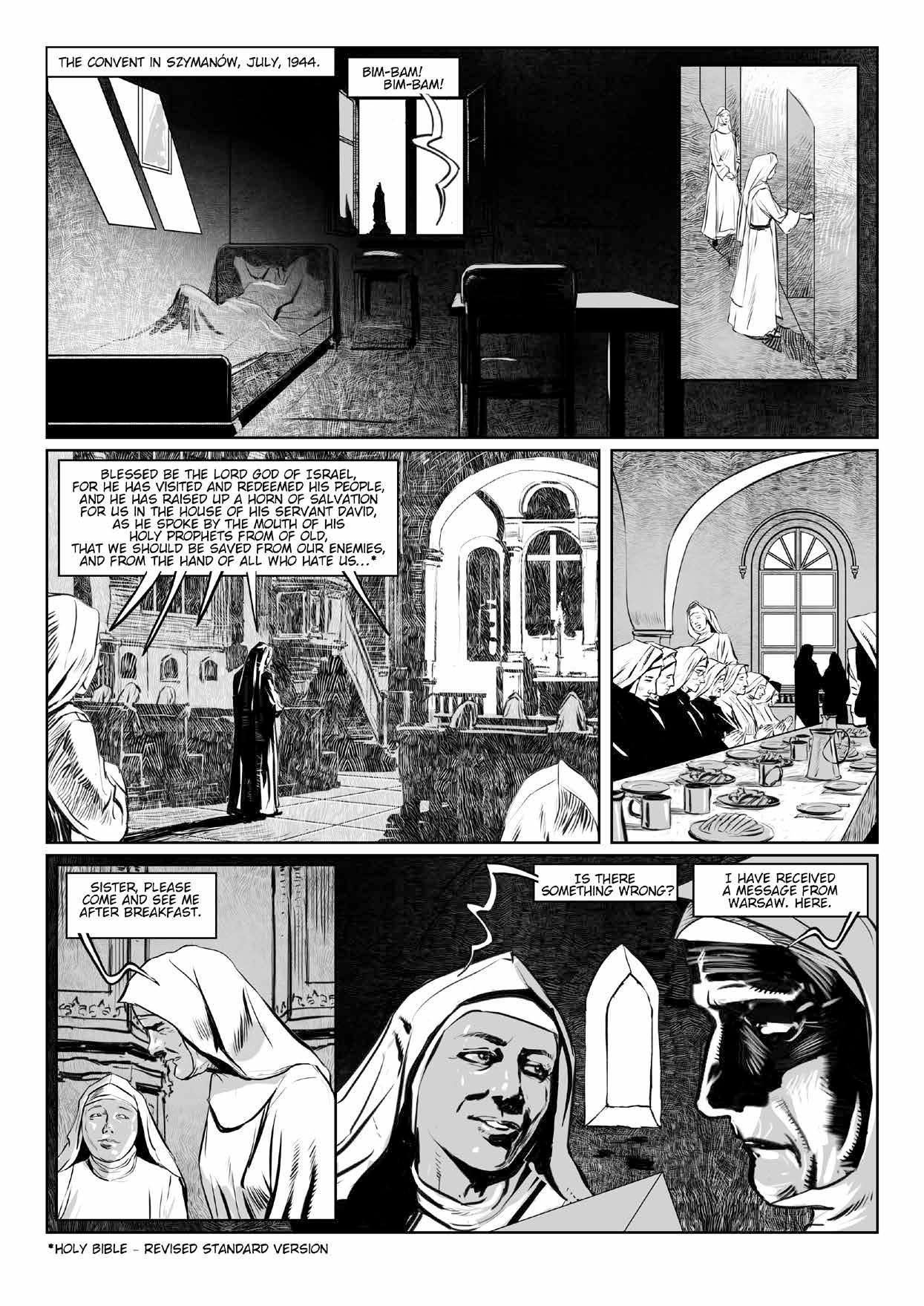
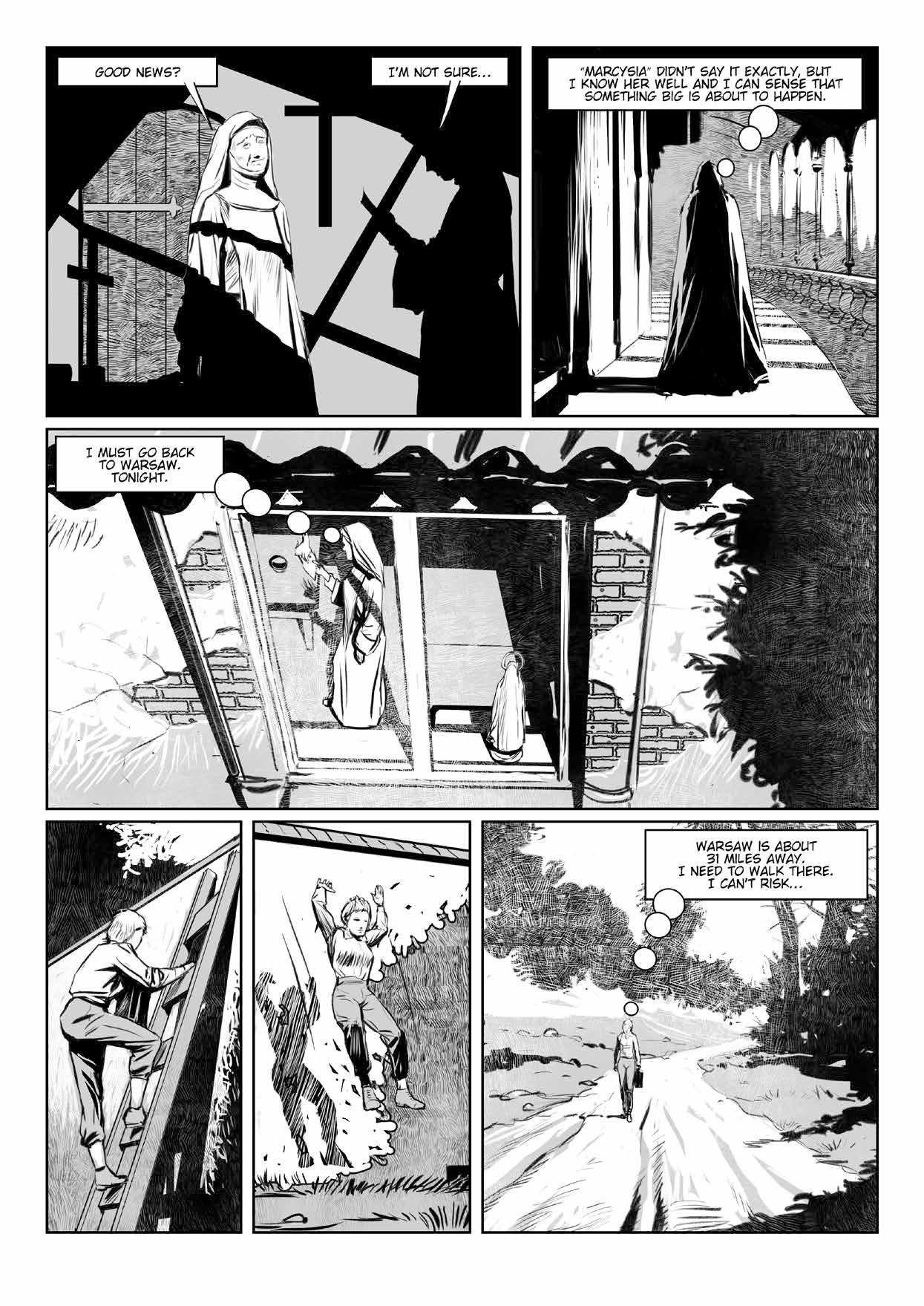
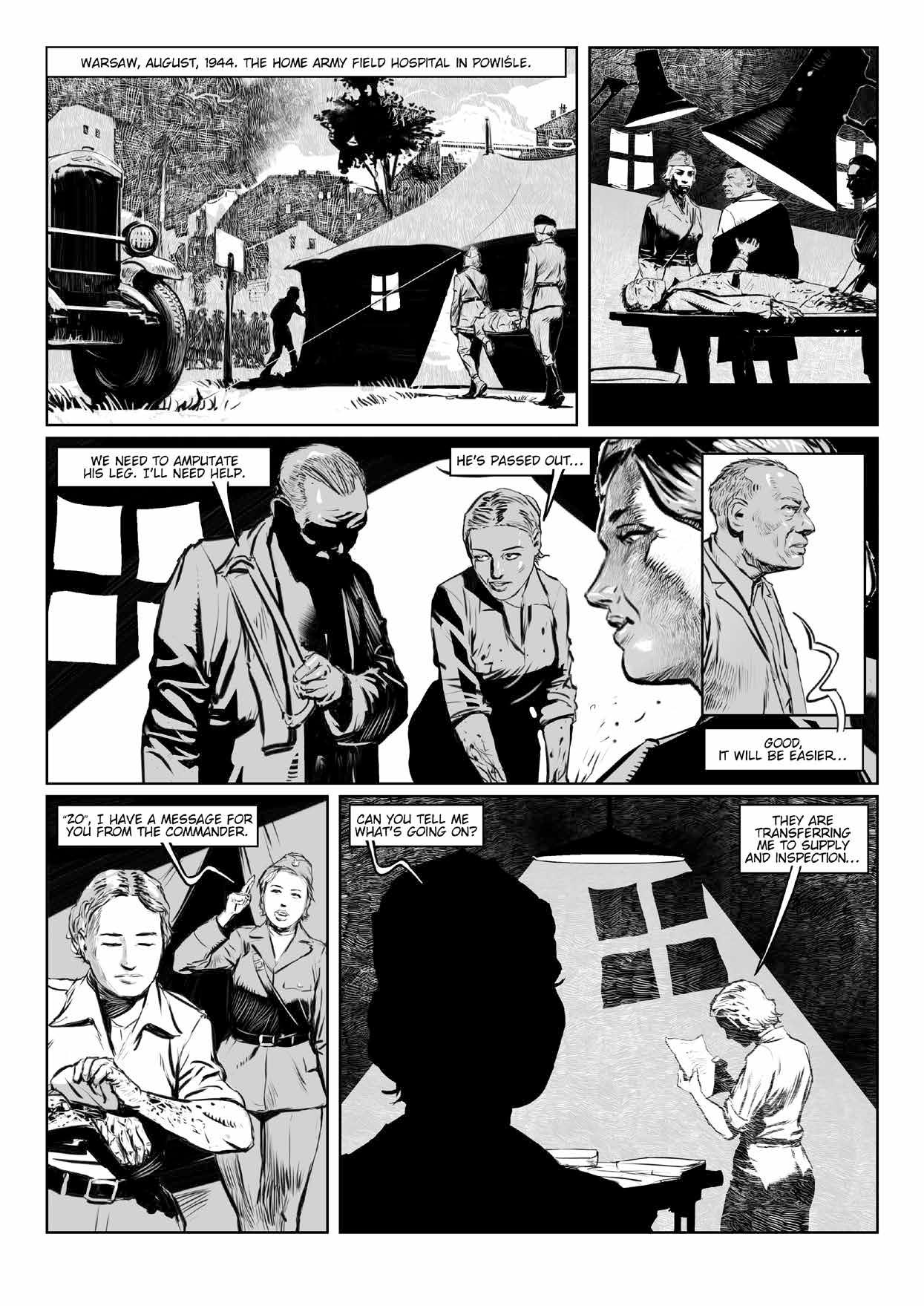
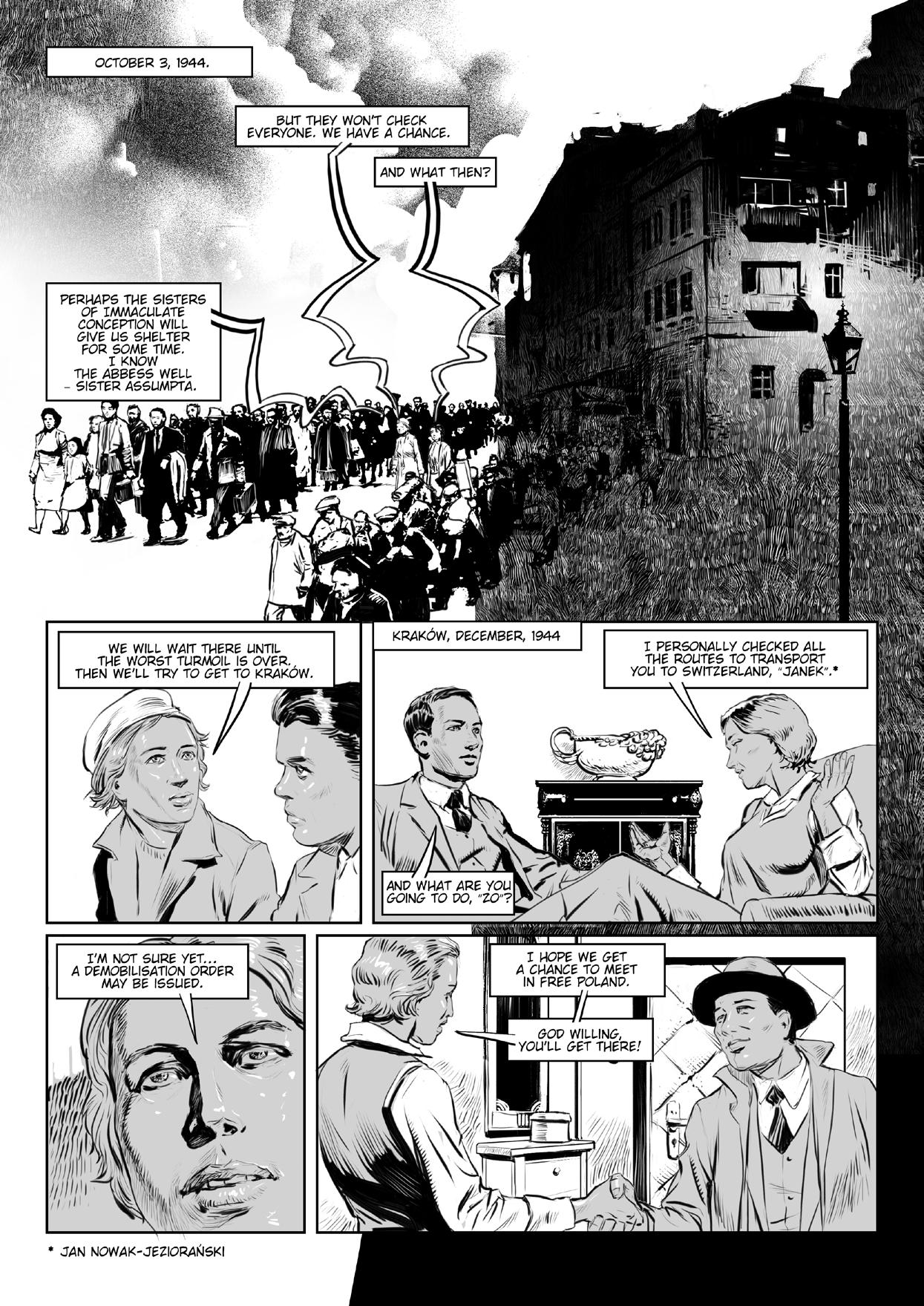
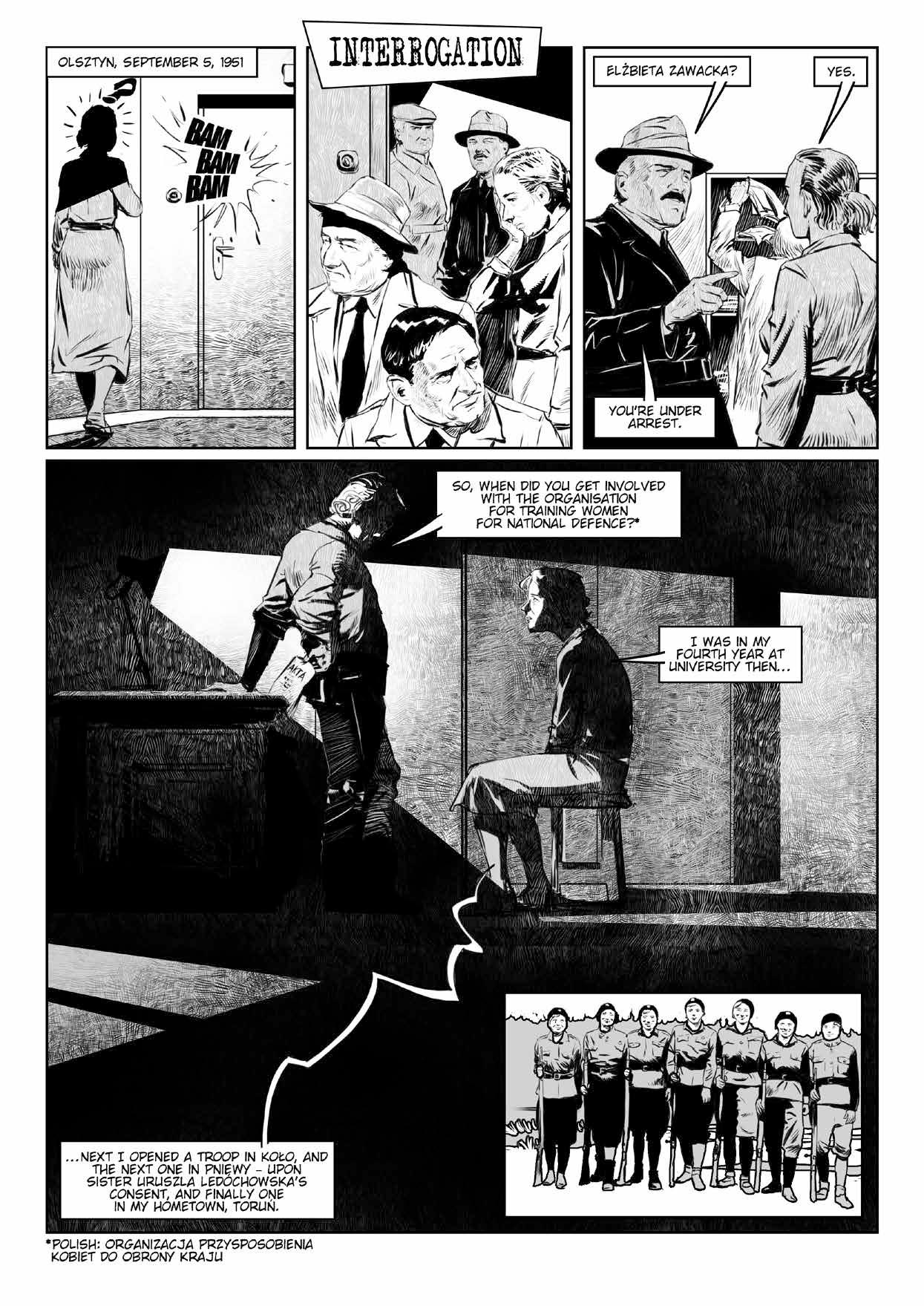
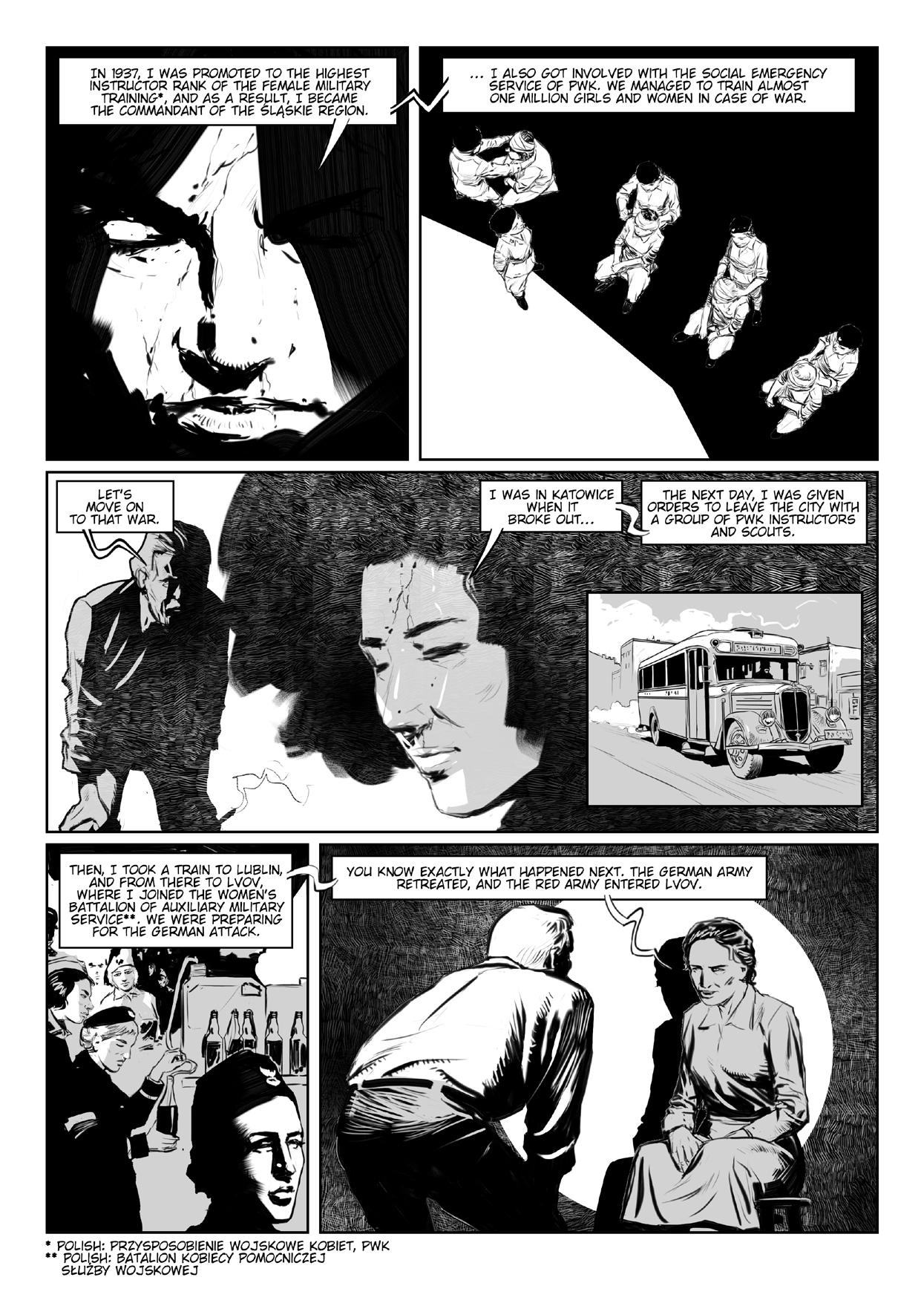

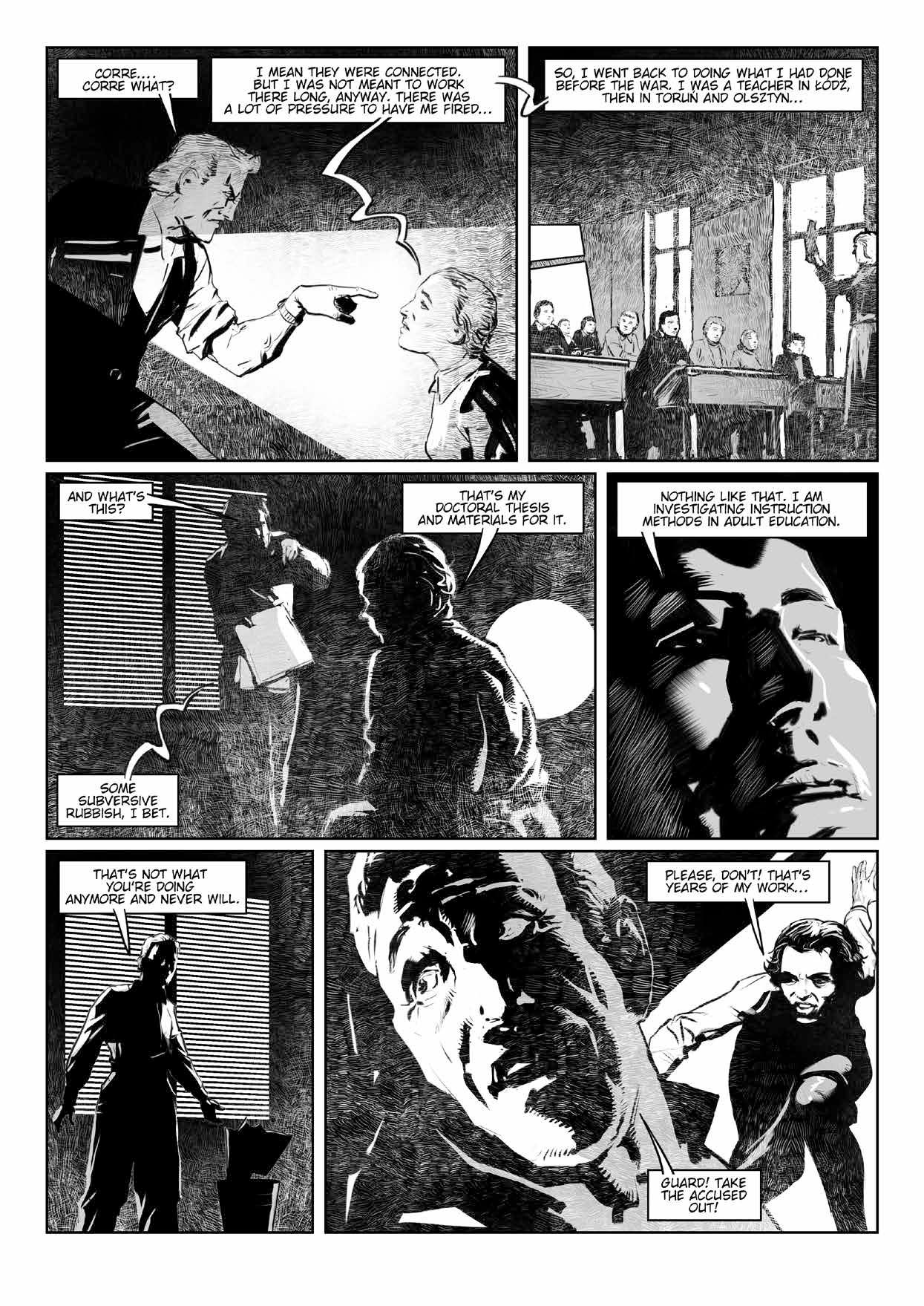

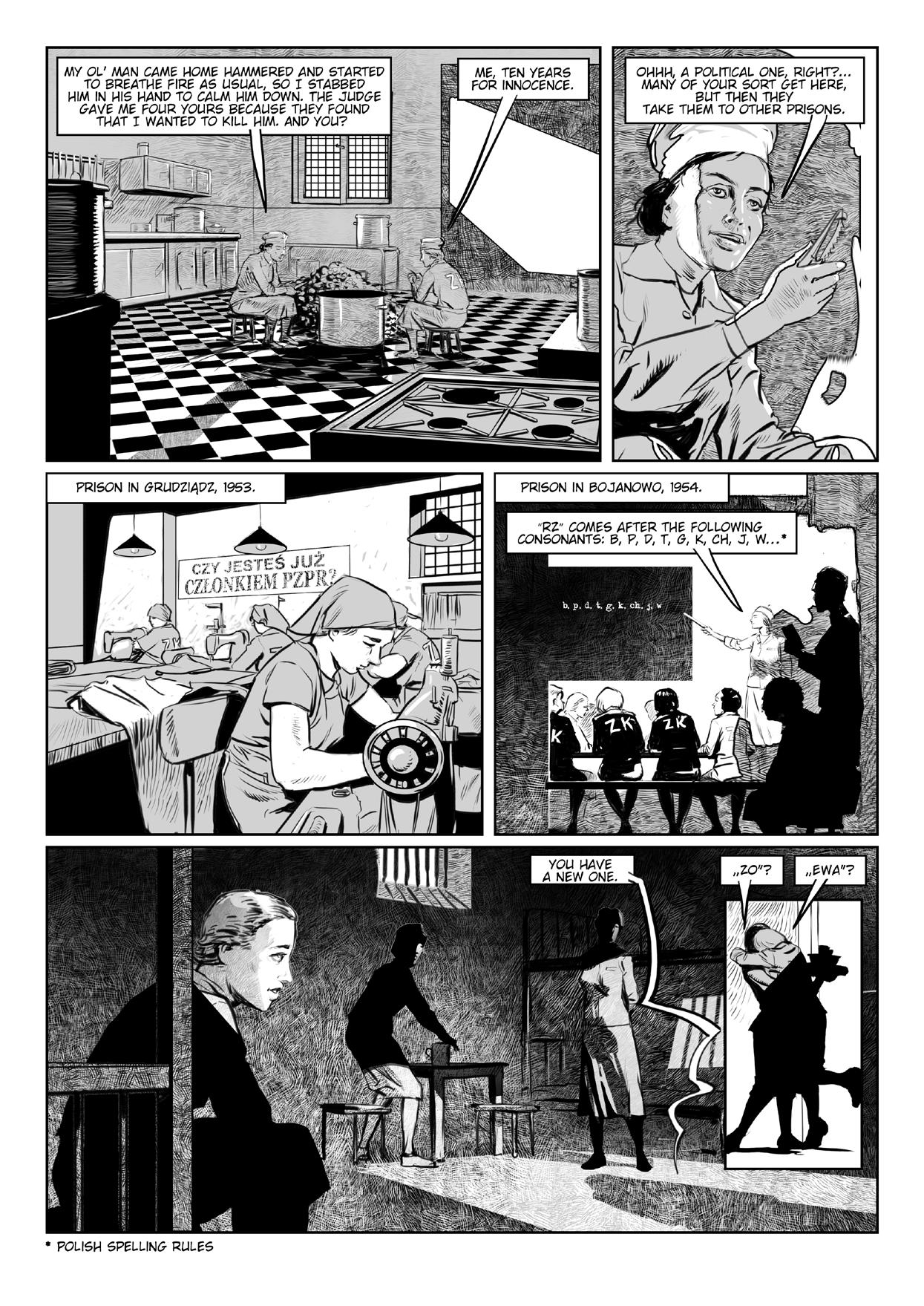
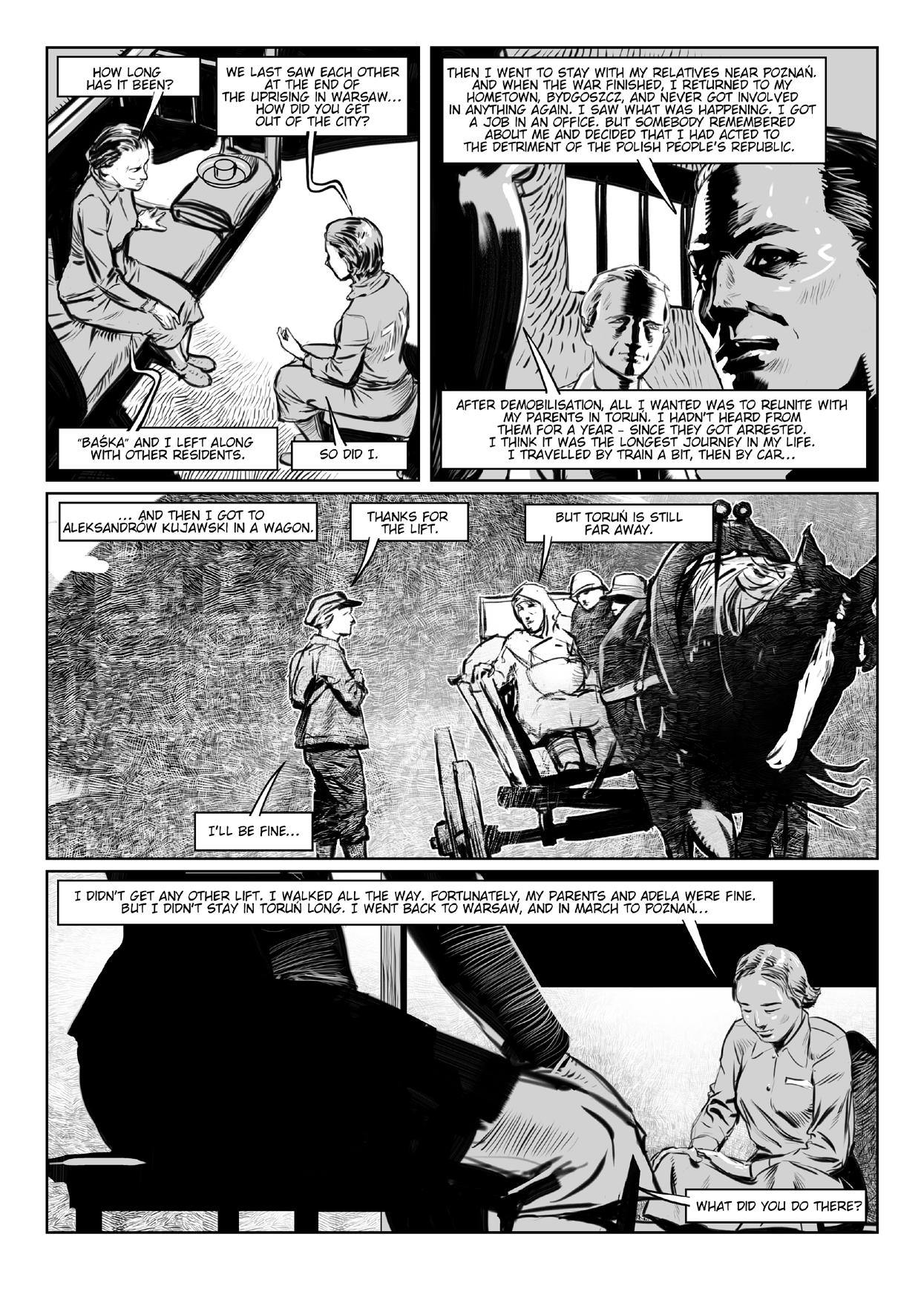

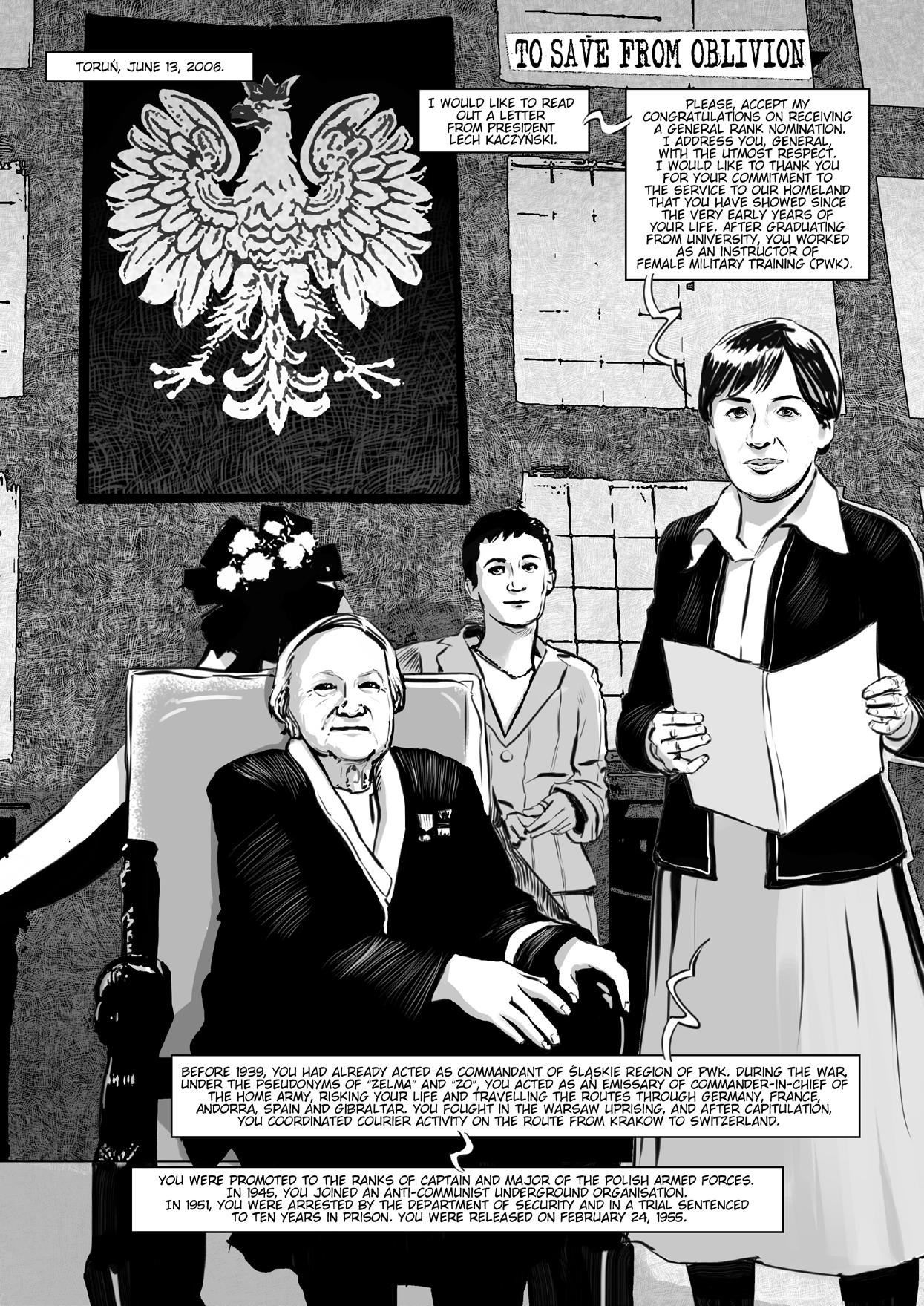
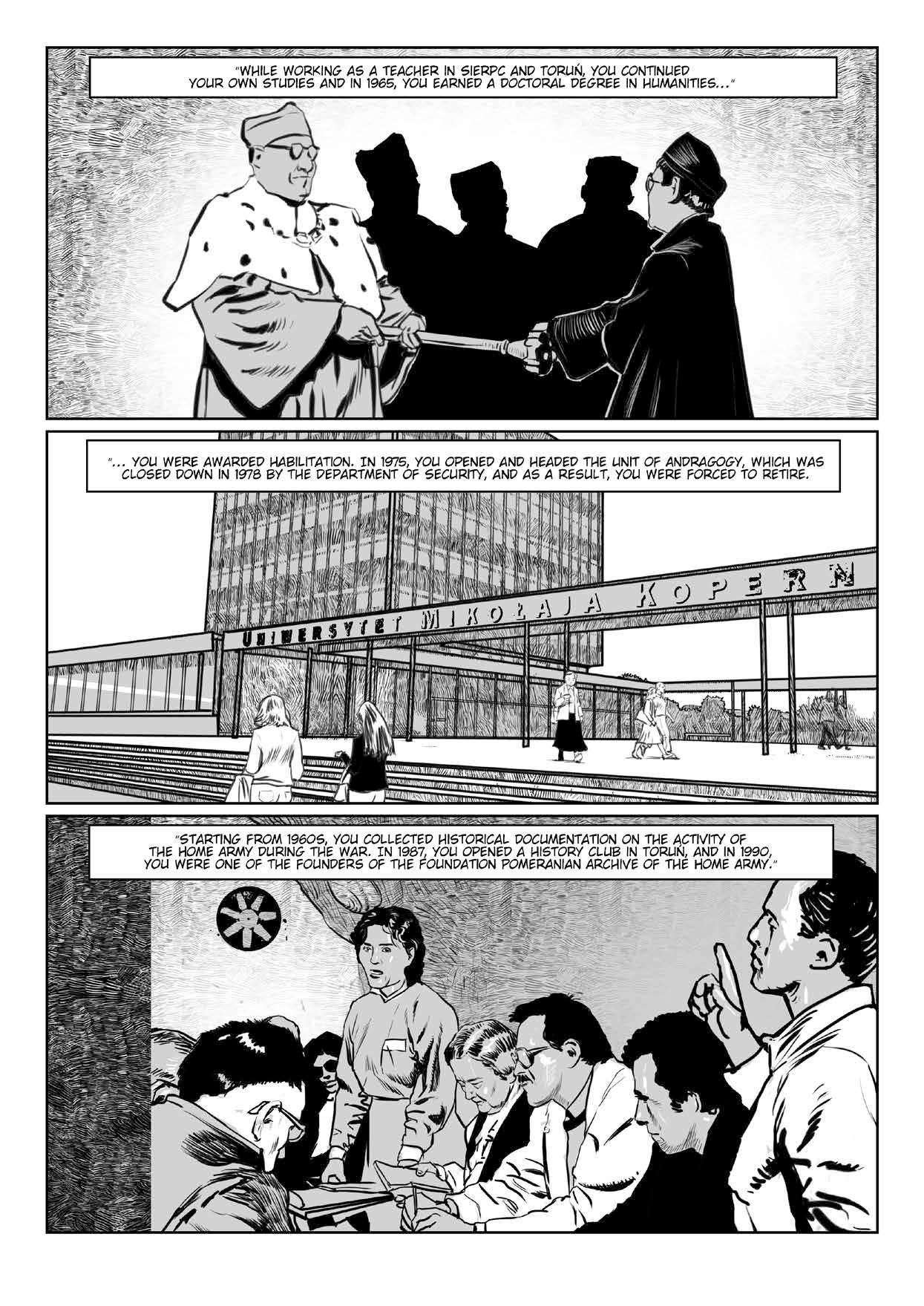
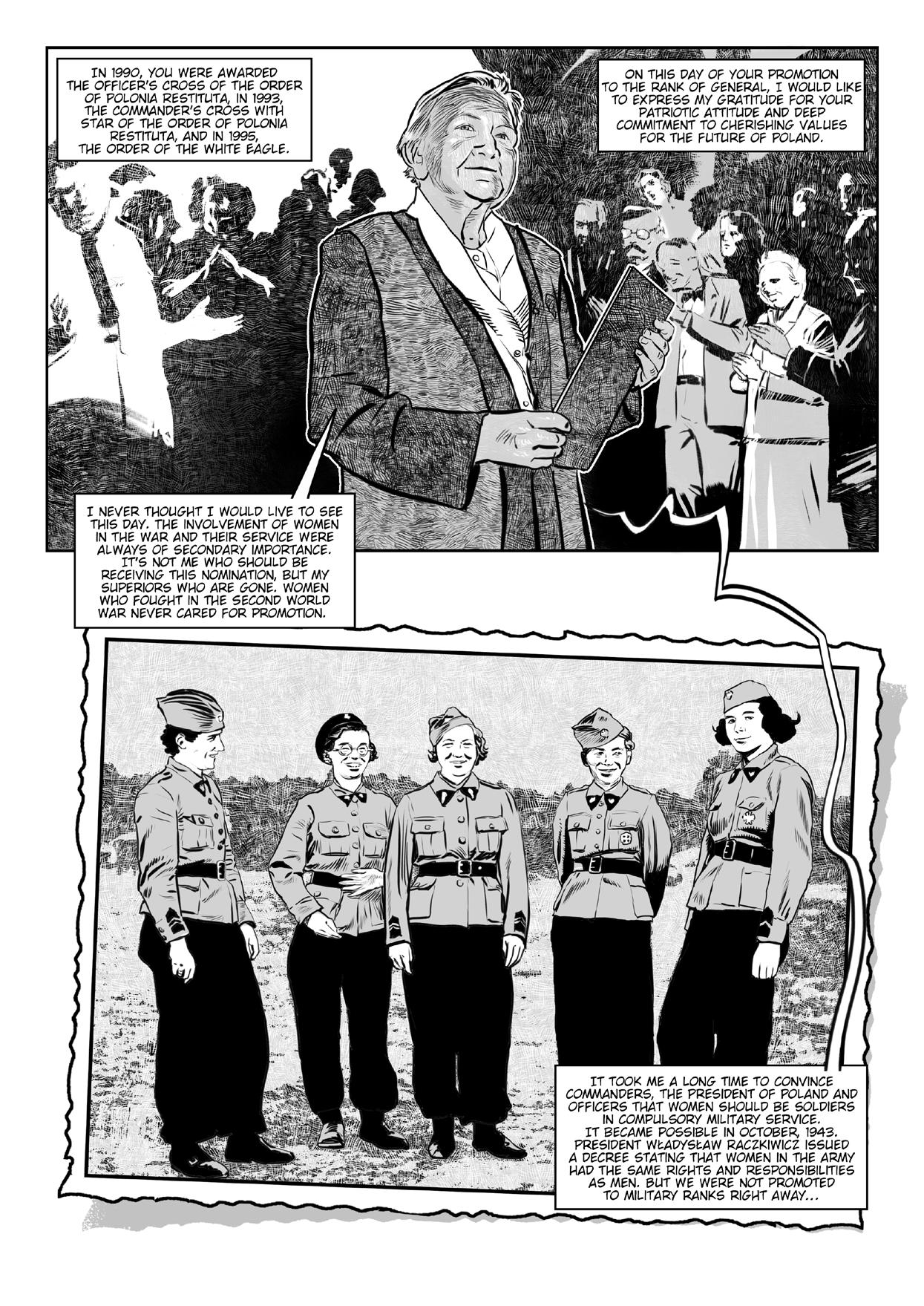
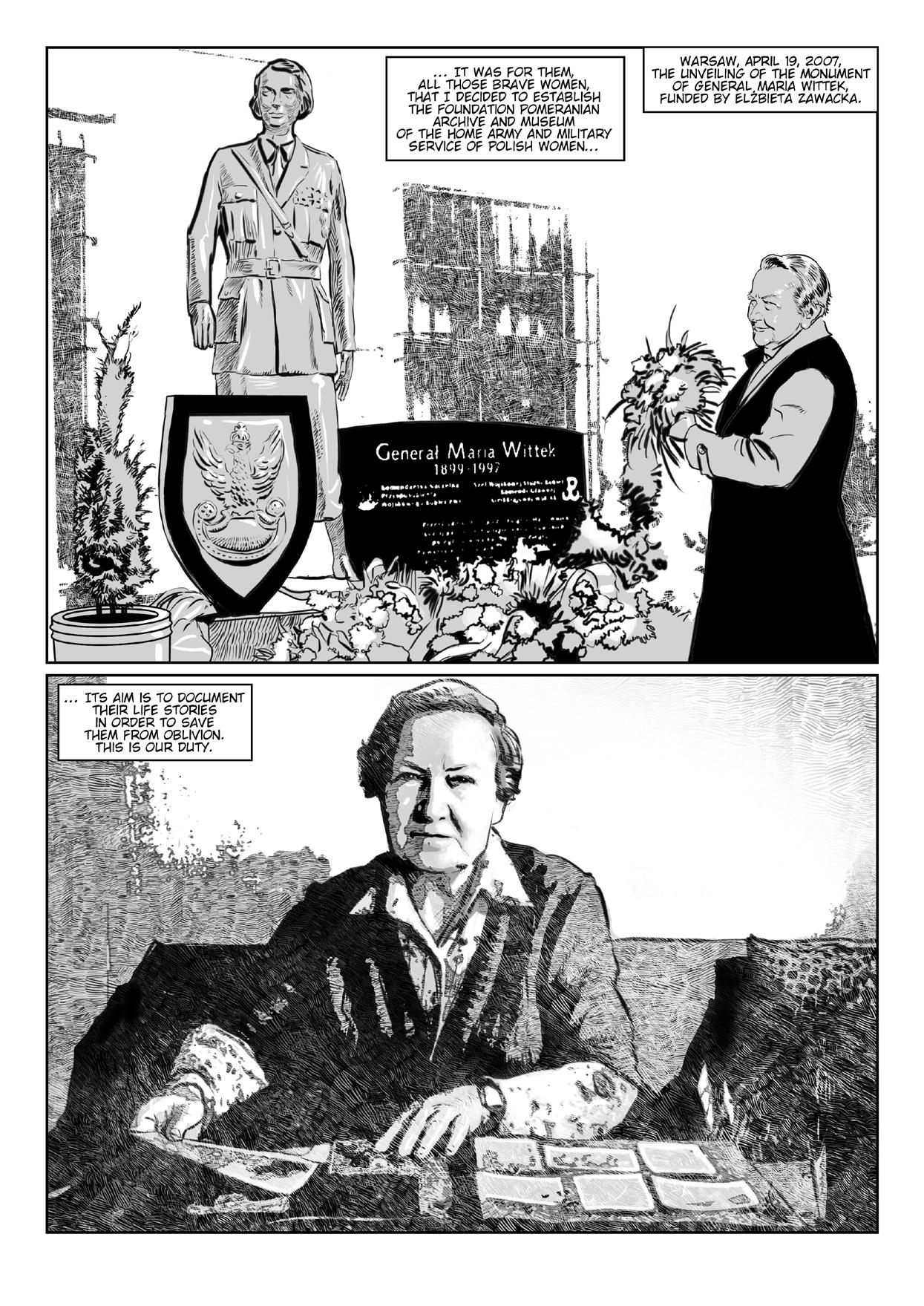
script
Maciej Jasiński
illustrations
Jacek Michalski
front cover image

Arkadiusz Klimek
specialist consultation
dr hab. Maciej Krotofil, prof. UMK
translation
Agnieszka Szewczuk
ISBN 978-83-959853-3-1
year of publication
2020
print run
1000 copies
published by
Agencja Reklamowa GALL sc
ul. Szosa Chełmińska 50, 87-100 Toruń
gall@gall.torun.pl
commissioned by
The Kujawsko-Pomorskie Region
Contact:
Office of the Marshal of the Kujawsko-Pomorskie Region in Toruń
Address: Plac Teatralny 2, 87-100 Toruń, tel. +48 56: 6218600, 6218610
e-mail: punkt.informacyjny@kujawsko-pomorskie.pl www.kujawsko-pomorskie.pl
facebook.com/WojewodztwoKujawskoPomorskie
twitter.com/lubietubyc
instagram.com/kujawskopomorskie
youtube.com/user/umwkp
issuu.com/kujawsko-pomorskie
flickr.com/photos/kujawskopomorskie
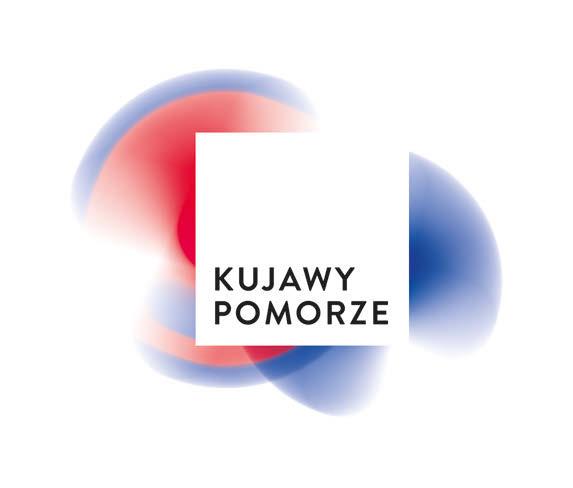
In 1942, after she (using a different name) had crossed the borders of German-occupied Europe for the hundredth time to deliver reports of the Home Army Headquarters to the West, she stopped counting her next trips. And that was still before her most famous trip, the one in the winter of 1943: across Germany, collaborationist France (that she crossed hidden under a pile of coal in a tender), the snow-covered Pyrenees (with a pursuit behind her back), Gibraltar to England. And her return to Poland a few months later, as a paratrooper, the only woman in the elite organisation of paratroopers, Cichociemni. And later her participation in the Warsaw Uprising, and after its collapse – restoration of communication with London.
In short, Elżbieta Zawacka, using her underground pseudonym “Zo”, seems like a perfect comic book character. However, being steeped in the contemporary pop culture, we are used to its fictitious female character resembling a miss universe and eastern martial arts champion in one. But Elżbieta Zawacka was different.
‘Medium height, blond hair and blue eyes, there was something masculine about her. She was strict, serious, a bit brusque and down-to earth (…) Only while we were saying goodbye did I feel a warm and firm handshake and heard a soft sigh, “God willing, you’ll get there”’ – this is how Jan Nowak-Jeziorański, another famous courier of the Underground State, described his first encounter with “Zo”.
W hat’s more, for a person who lived for almost a century (she passed away in January, 2009, only two months before her 100th birthday) the underground period (years 1939 – 1946) barely constituted one tenth of her life.
O ne may say that seven years against one hundred years is not much, but this was an unusually heroic period. It surely was, but wasn’t Elżbieta Zawacka’s later life an example of heroism, though of utterly different kind? Despite communism, in its most brutal Stalinist form especially at the beginning (which earned her five year imprisonment), she never left the country, but tried to be there and then to serve Poland.
W hat fortitude must one have after being released at the age of almost 50 to start a scientific career (laying foundations for a new field of andragogy – adult education), crowned by professor title and UNESCO recognition, and all this time to protect, even in the darkest times, the memory of the Underground State (e.g. she initiated the establishment of the World Association of Home Army Soldiers), especially of women fighting in the Home Army. She lived a frugal life, in a small flat in one of the prefabricated concrete apartment blocks in Toruń. Still, when Poland regained its independence, she used her own money to fund two monuments commemorating Polish women who had fought for freedom.
In 2005, she said, ‘I’ve had a happy life (…) Even those several years in prison… No, that didn’t matter. What does matter is what there’s still to be done.’
ISBN 978-83-959853-3-1
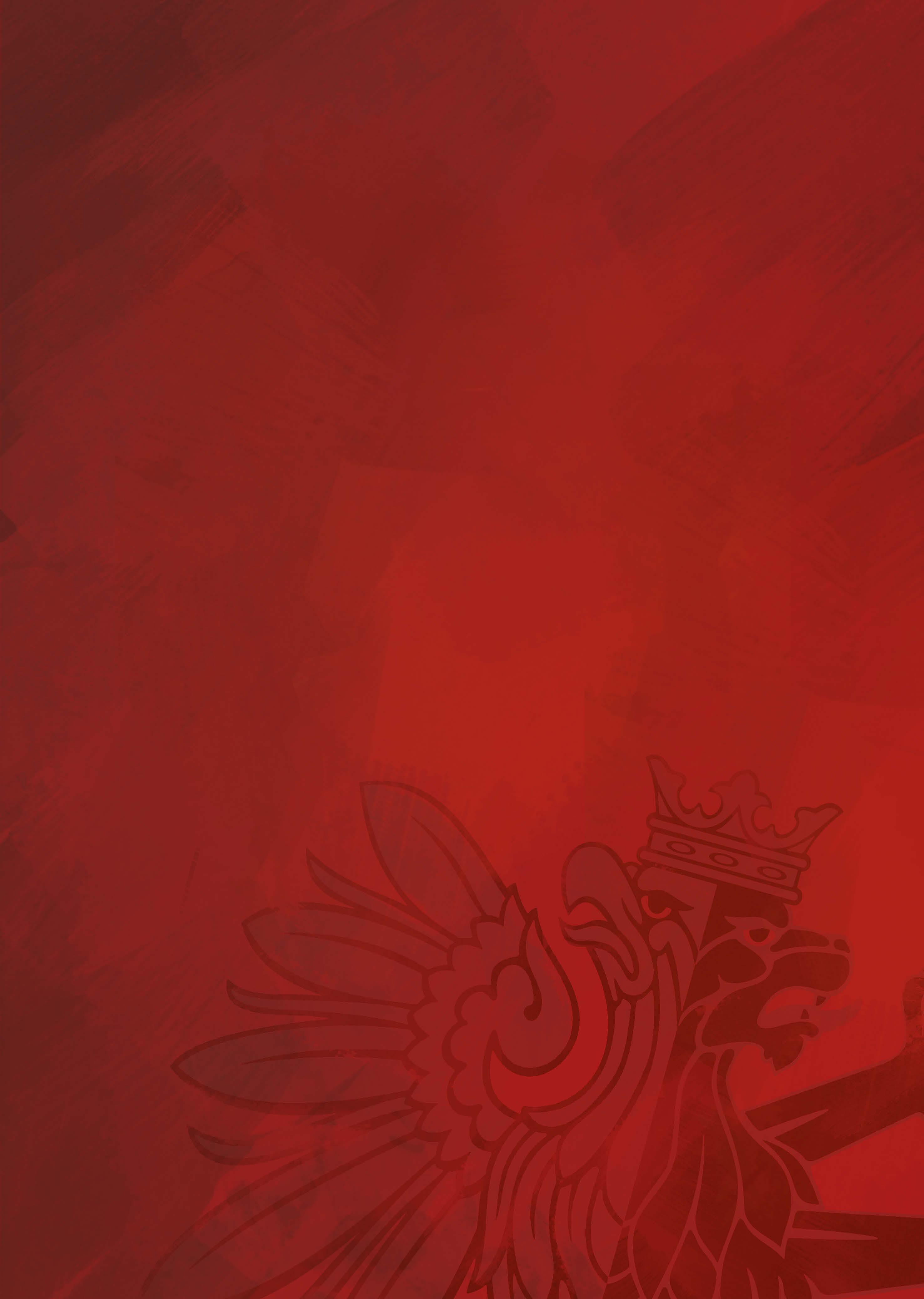 Piotr Całbecki
The Marshal of the Kujawsko-Pomorskie Region
Piotr Całbecki
The Marshal of the Kujawsko-Pomorskie Region